Dear Readers,
During the past few tumultuous years for our community, one constant has never wavered: the impact of our nonprofit sector addressing social issues, human needs and natural disasters. Non profits, supported by philanthropy, have shown a resilience that helps enhance our communities in these challenging times.
And despite the importance of their work, we also know that nonprofits are facing great financial constraints. Because giving matters now more than ever, Wisconsin Philanthropy Network is proud to partner with Milwaukee Magazine on this Give Back Milwaukee campaign.
Please enjoy learning about the magnificent work taking place in our nonprofit community, and thank you for giving generously.
Give Back MKE
Tony Shields
FOR THE THIRD YEAR, Milwaukee Magazine is partnering with Wisconsin Philanthropy Network to spread the word about local nonprofits and charitable groups that are bettering our community and helping the least fortunate. In the following pages, you’ll find 21 remarkable organizations and learn about their work. We hope that these stories will inspire you to donate, volunteer or both. To donate to any of these organizations, please visit milwaukeemag.com/giveback.
Sincerely,
ILLUSTRATIONS: GETTY IMAGES
Tony Shields President and CEO Wisconsin Philanthropy Network
60 milwaukeemag.com
These local organizations are doing great work in our city – and they need your support.
Find
SHEPHERDS COLLEGE
Achieving Potential
SHEPHERDS COLLEGE was founded 15 years ago, with only six students. The post-secondary school, serving those with intellectual and developmental disabilities, now has 86 stu dents enrolled, and has become the leading school of its kind in the nation.

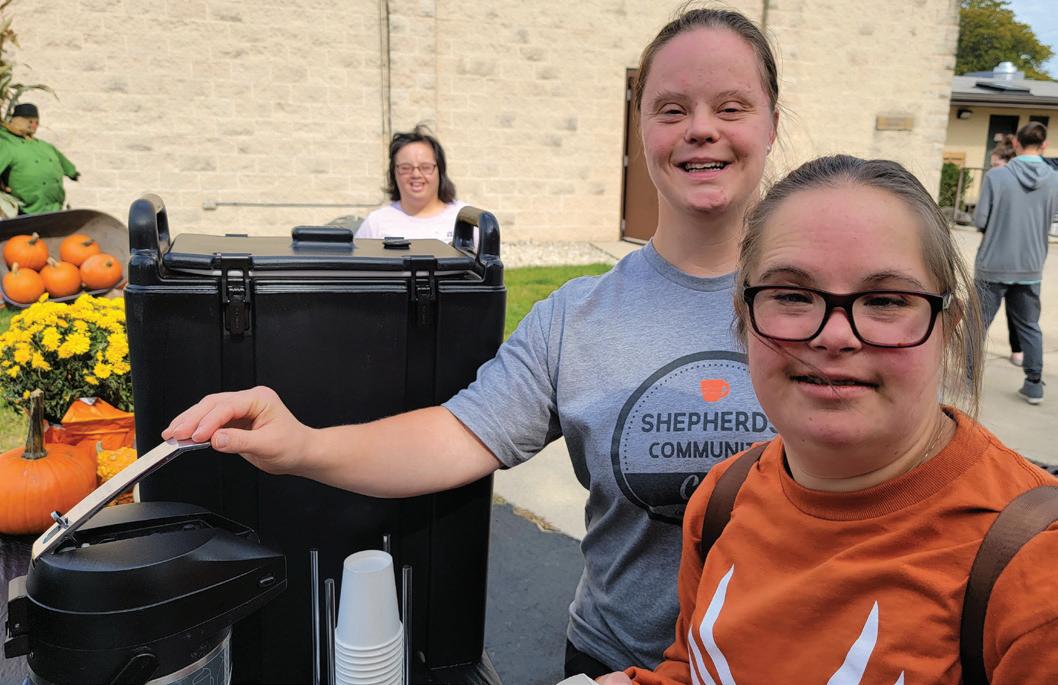
“We’re the largest school that serves this population and the only one that is accred ited,” says Dr. Tracy Terrill, the president of Shepherds College.
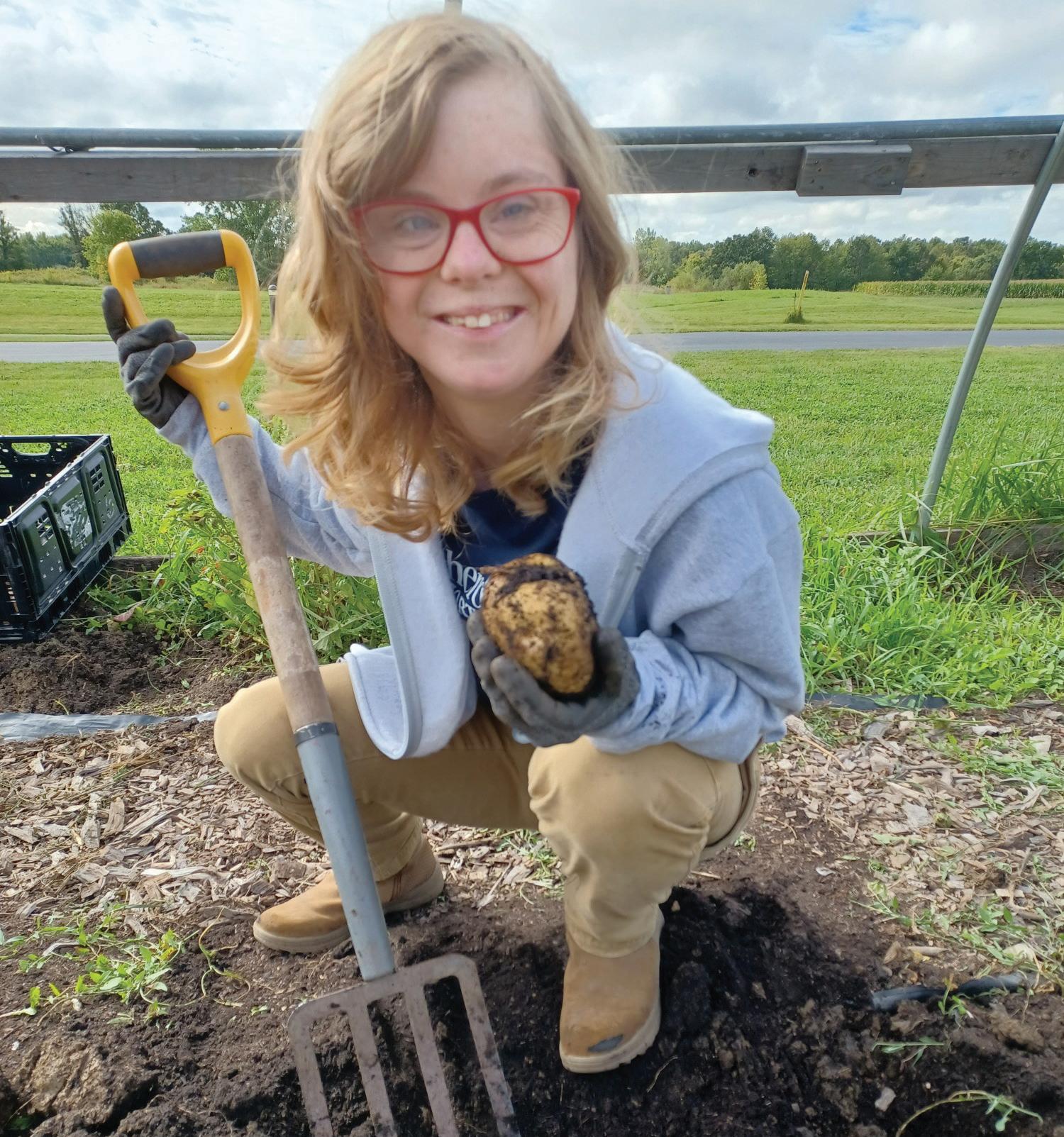
Students attend three years of classes at the residential Union Grove campus, studying culinary arts, horticulture or technology. Students have come to Shepherds College from far and wide – more than 34 states and eight countries.
In each student’s final year on campus, they are placed in jobs related to their chosen specialty, working up to 20 hours a week. And the college has a remarkable track record of post-graduation success.
“Our graduates are employed at over 80% – and that’s gainfully employed – at minimum wage or higher,” says Terrill.
In addition to their vocational coursework, students develop social and life skills on campus that further their independence
after graduation. Just like at other colleges and universities, opportunities to participate in athletics, clubs, spiritual groups and service projects are part of the on-campus college experience.
“Our mission is based around the philosophy of ‘Appropriate Independence,’” says Tyler Sallee, the campus director. “We focus on each student as an individual – their strengths, their needs – and we help them grow to the right level of independence for them.”
The college’s latest effort is to launch a new fundraising campaign to improve student housing and install new safety measures. “This is a major project,” says Terrill. “It’s going to do things like put fobs on doors to secure the campus and have gated entrances to control traffic.”
After they graduate, Shepherds College students go on to work in stores, restaurants, IT troubleshooting jobs and much more, and many are able to live far more independently than before attending.
“It’s great to see students leave here and go on to do amazing things,” Sallee says. “We believe in our students, and we love to see that.”
What We Do:
Shepherds College is a post-secondary school for students with intellectual and developmental disabili ties, located on a residential campus in Union Grove.
The college offers job, social and life skills training, along with occupational training in culinary arts, horticulture and technology.
Where Your Money Goes:
Donations go toward the Shepherds College Annual Scholarship Fund, which helps provide scholarships to students with financial need.
Shepherds College is also seeking donations to fund its campus renovation project, improving student housing and installing new safety features.
1805 15th Ave., Union Grove 262-878-5620 shepherdscollege.edu
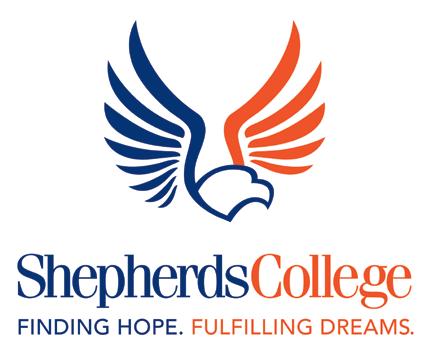
December 2022 61DONATE NOW! milwaukeemag.com/giveback
SPONSORED CONTENT
out more on the MilMag Facebook livestream on Nov. 29 at noon.
HUMANE ANIMAL WELFARE SOCIETY
What We Do:
The Humane Animal Welfare Society (HAWS) is an open admission, no-kill shelter dedicated to strengthening the relationship between animals and humans through adoptions and education.
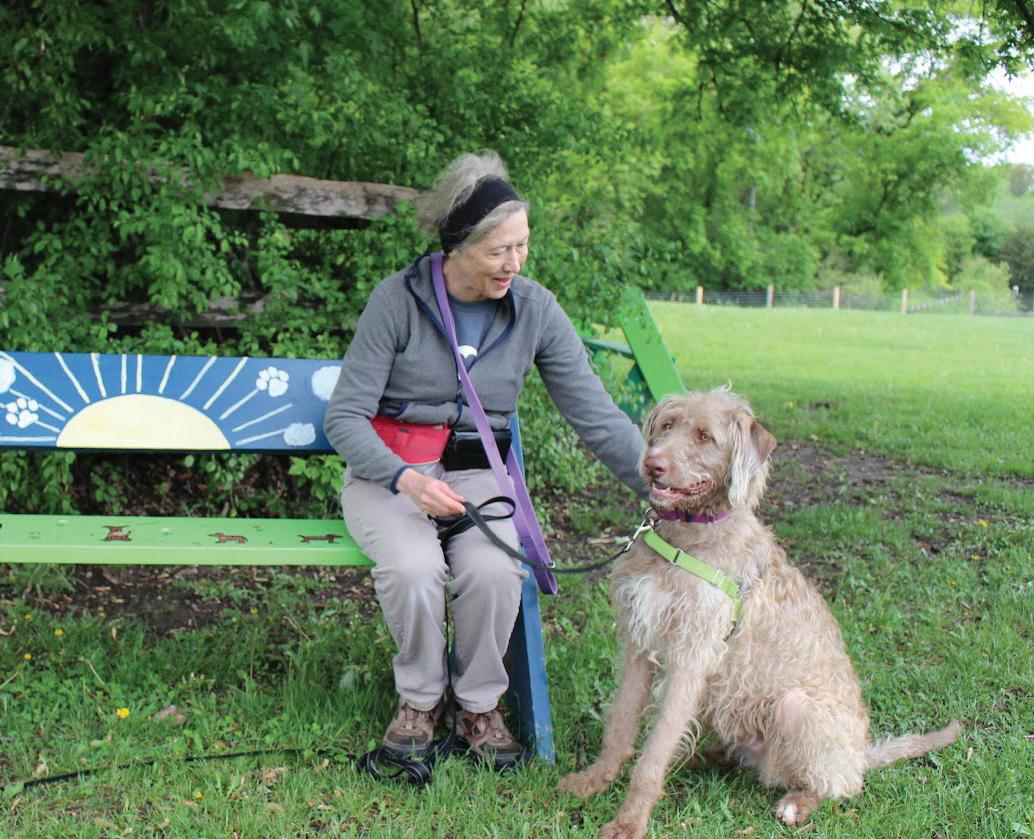
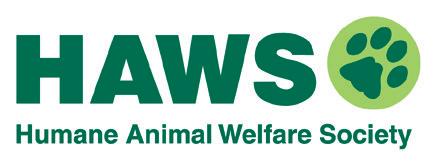
HAWS’ new K9 Task Force program trains shelter dogs to improve their socialization before adoption through field trips, play dates and more. One such dog is Doogie, a 3-year-old rescue from Alabama. “Doogie was your stereotypical rescue: a scruffy, young dog that was active and fun,” says Jennifer Smieja of HAWS. “He needed to work on manners.” After K9 Task Force, he found a home with Brian Langer. Langer recalls the day he first met Doogie: “We just saw this bright-eyed, intelligent dog. We wanted to give him a chance. We’ve seen a lot of really positive changes.” Since the K9 Task Force program debuted in April, 160 of its dogs have been adopted out.
Where Your Money Goes:
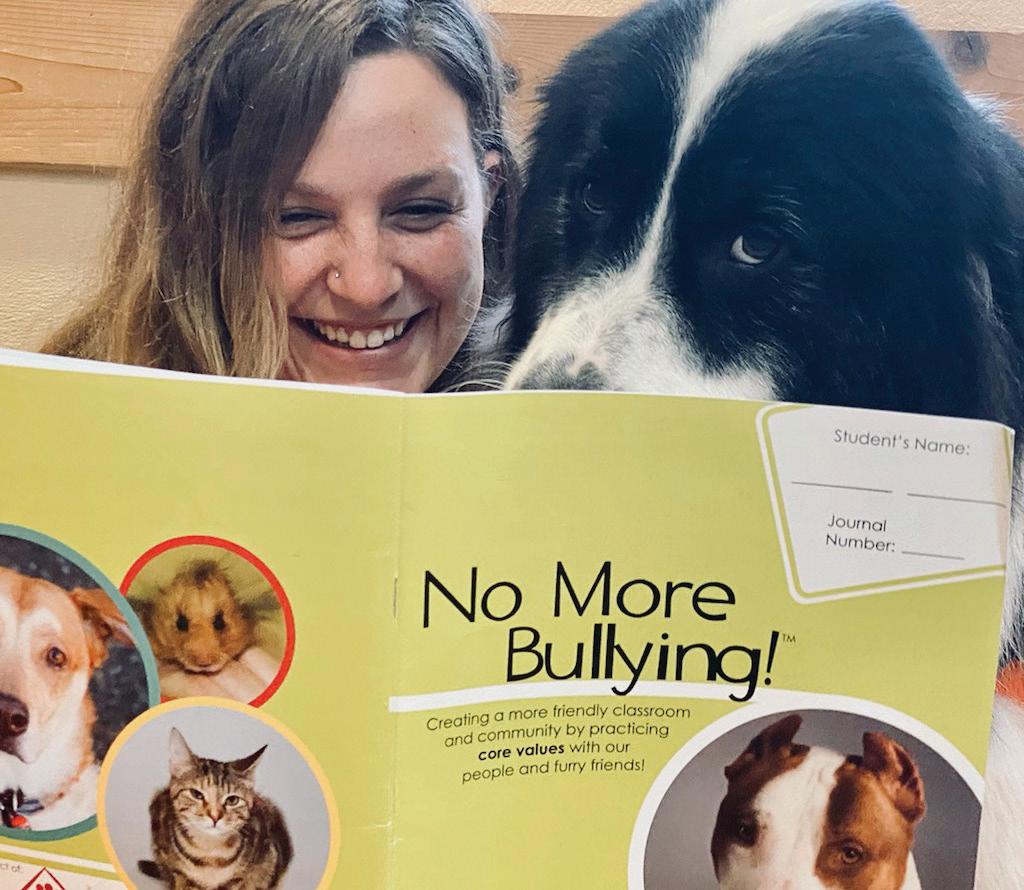
Through donations and volunteer efforts, HAWS is able to fund lifesaving and life-changing programs and services, including support and care for all types of domestic species, both before and after adoption; the HAWS K9 Task Force; one-on-one behavior consultations; and a 24-hour animal rescue service. Supply donations are welcome, with an Amazon wish list published on hawspets.org
Donations also support all-ages education programs. Volunteers are needed to provide foster homes for dogs, and to assist the K9 Task Force (taking dogs on play dates, field trips and walks, etc.)
701 Northview Rd., Waukesha HAWS Schallock Center for Animals W330 S1205 County Rd. C, Delafield 262-542-8851 HAWSpets.org
RE-IMAGINE EDUCATION
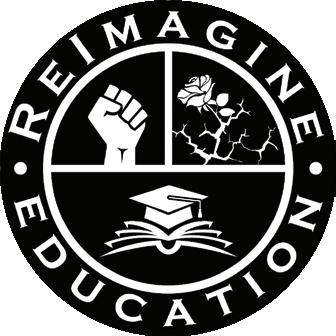
What We Do:
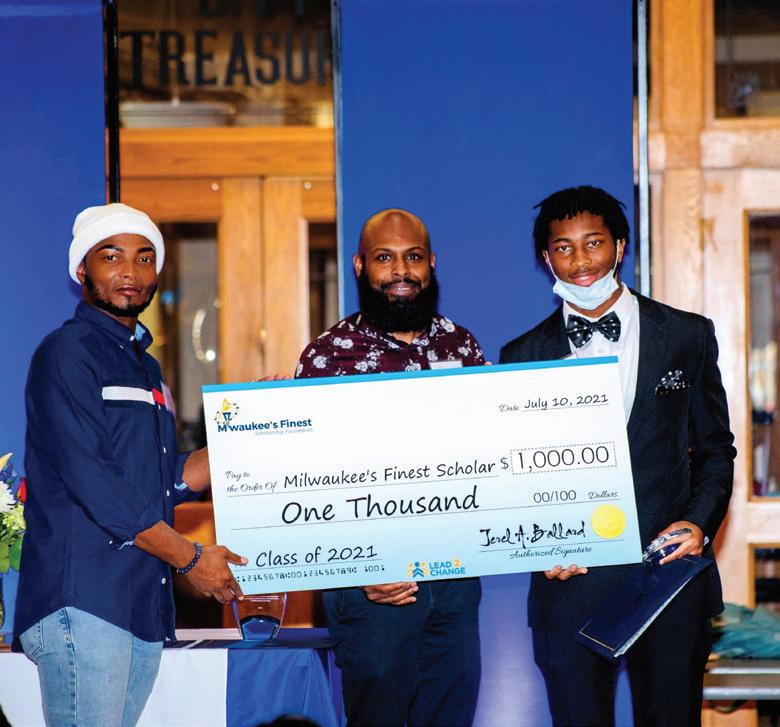
Re-Imagine Education is a nonprofit with a mission to attract BIPOC talent to education careers and to promote retention and upward mobility through mentorship. “Forty-two percent of Black teachers are leaving the classroom after two years because of a lack of mentors and sense of belonging,” says Isiah King, a former teacher and principal in Beloit and co-founder of Re-Imagine Education. “In Wisconsin, 31% of students are people of color and only 6% of teachers are people of color.” Co-founder Keith Streicher, an Iraq War veteran, was the interim business operations manager for Rocketship Transformation Prep School. “I saw how our teachers were suffering with a lack of supplies and diversity,” he says.
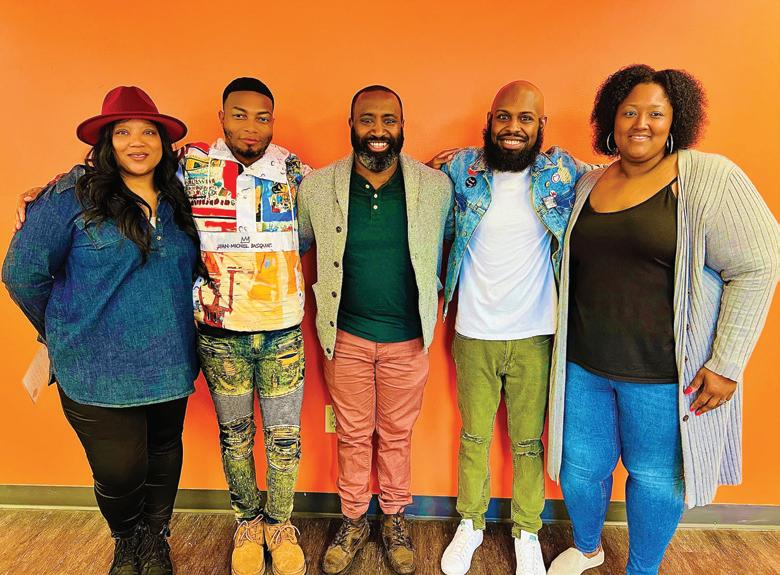
Re-Imagine Education’s Future Teachers Incubator program targets career-changers and college students, providing mentors to help them enter the education field. Re-Imagine Education also trains current teachers in working with students of different backgrounds. “A lot of the teachers who are in city schools don’t look like the students they serve,” says Shayla Burris, an assistant principal at Cristo Rey High School, who worked with Re-Imagine Education. “They did it in a relational way,” she says of the experience. “We learned things we could put into practice the next day.”
Where Your Money Goes:
Donations support programming to prepare a new generation of BIPOC teachers, as well as to train teachers to work with students of diverse backgrounds. Programs include the Future Teachers Incubator. Funds support an annual scholarship for a BIPOC student studying to become a teacher.
4938 N. 56th St. 414-485-5817 re-imagineed.org
62 milwaukeemag.com
SPONSORED CONTENT
Find out more on the MilMag Facebook video on Nov. 29 at noon.
Find out more on the MilMag Facebook video on Dec. 6 at noon.
CHILDREN’S WISCONSIN
Saving Lives
STEVE AND LIZ APEL thought their 6-year-old son, Cameron, was a perfectly healthy kid. He got sick more often than his 4-year-old brother, Harrison, but it seemed like that was just a matter of germs circulating through his classroom. Then, in February of 2022, they left their home in Slinger to visit Steve’s grandmother up north. “Cameron was coughing every five seconds,” Liz recalls. “We told him that when we get home, we’re going straight to Children’s Wisconsin Emergency Department.”
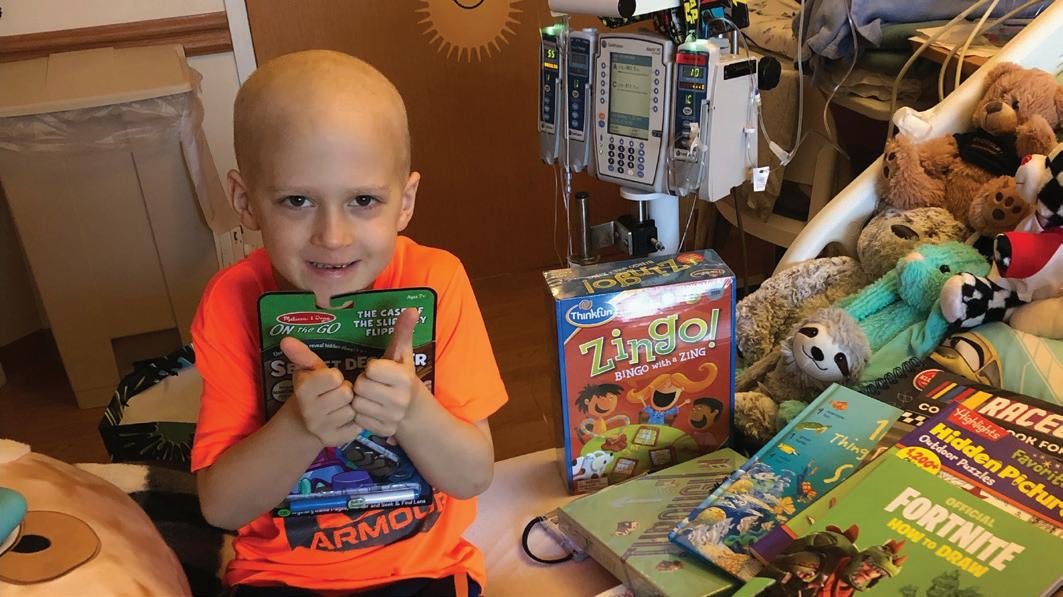
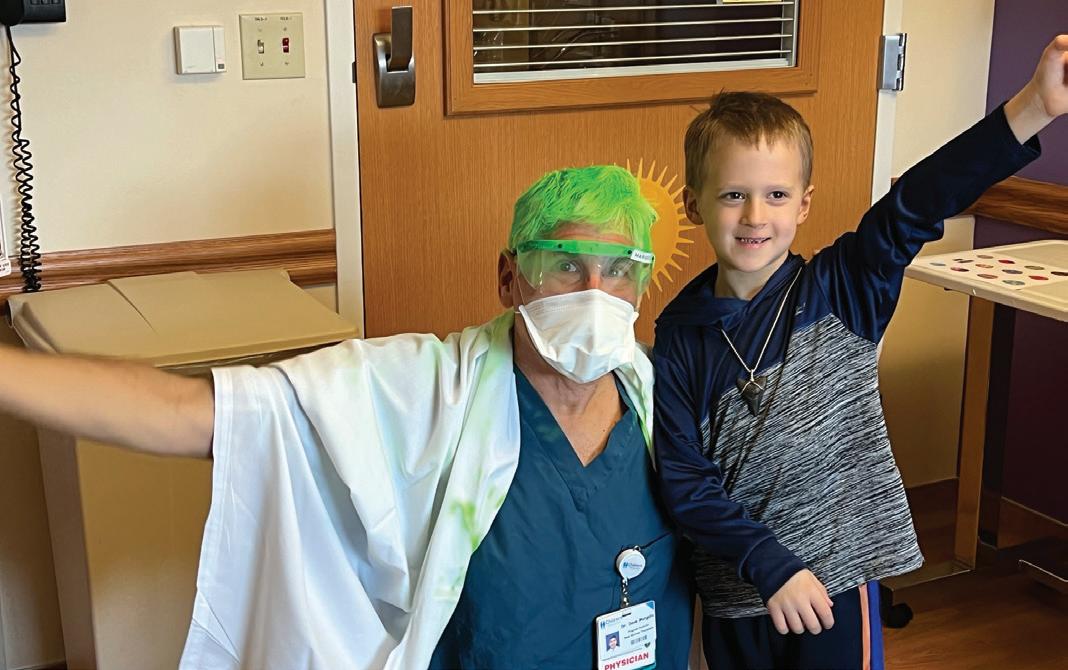
At Children’s Wisconsin Milwaukee Hospital, blood work revealed that Cameron’s hemoglobin, platelet and neutrophil levels were far below where they should be. He was admitted, and a month passed during which Liz and Steve alternated nights and days at his bedside while he underwent tests. He was diagnosed with severe aplastic anemia, a bone marrow disorder that, when untreated, has a very high death rate. The Apels were introduced to Dr. David Margolis, MD, a pediatric oncologist at Children’s since 1992 and one of the nation’s leading experts in bone marrow transplants, who specializes in aplastic anemia. “Those first days were really painful,” Steve says. “Dr. Margolis and his whole team really took us step by step through every day.”
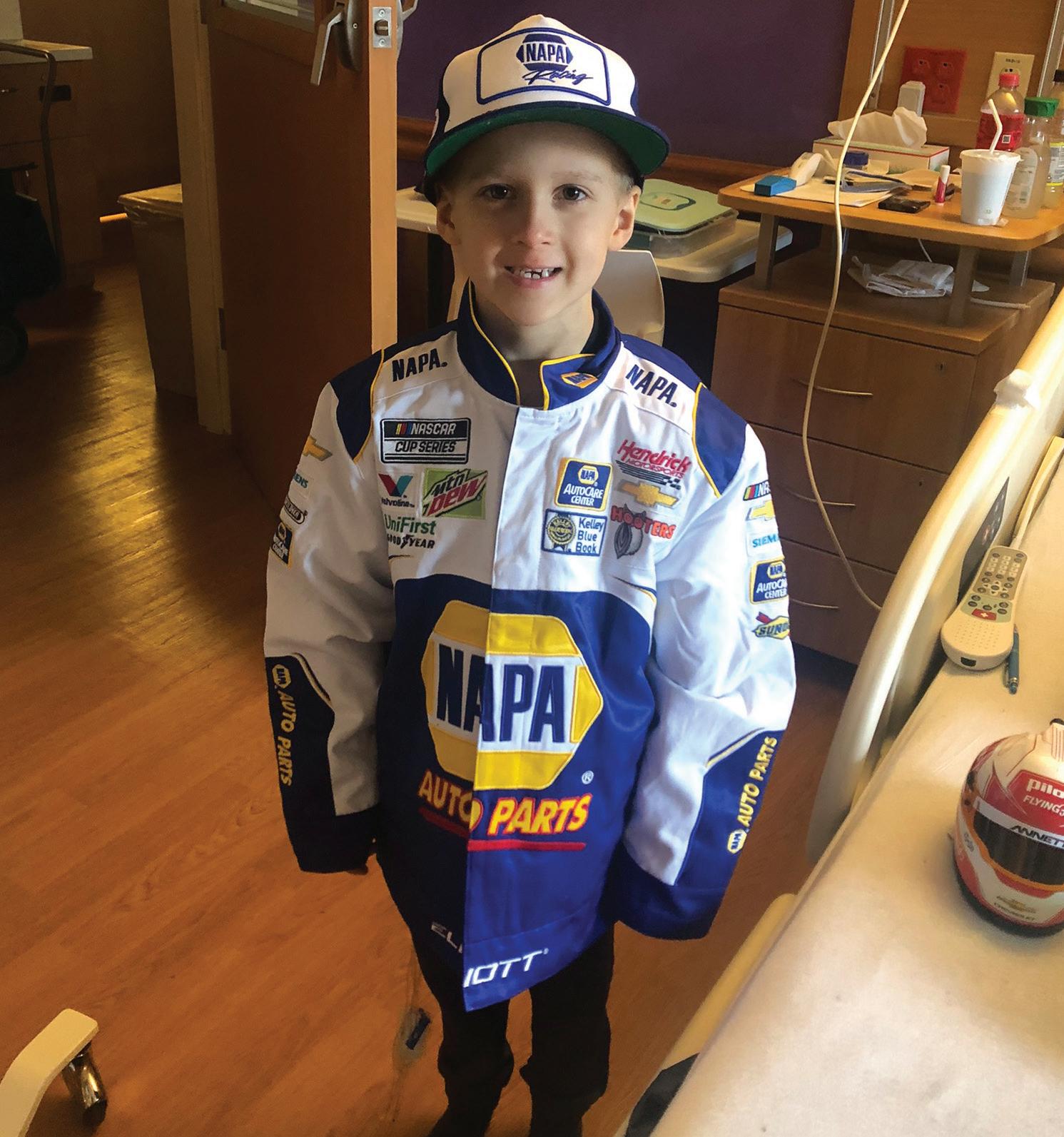
“We’re not taking care of a disease – we’re taking care of the kid and the family,” Dr. Margolis says. “My first way of doing that is by learning what keeps the kid in the game. For some kids, it’s sports; for some, it’s music and art. For Cam, it was racing.”
Steve is a driver at Slinger Super Speedway, and Dr. Margolis found that talking about racing helped get Cameron through his hospital stay. He also found that Cameron’s brother was a bone marrow match and could provide a transplant. “I would come in with lists of questions, and Dr. Margolis would spend every second he could to reassure me,” Liz says. Fortunately, the transplant, done at The MACC Fund Center for Cancer and Blood Disorders at Children’s Wisconsin, was a success. Six months later, Cameron is still recovering, but he’s doing much better – and he’s back in school. “We were very fortunate to have Children’s in our backyard,” Liz says. “We’re grateful to be so close to a world-renowned team.”
“Children’s provides outstanding care,” says Dr. Margolis. “We research, we educate and we take care of kids and their entire family. And we do that in a way that is compassionate, comprehensive and cutting-edge.”
What We Do:
Children’s Wisconsin is one of the nation’s top-ranked pediatric health systems. They go beyond treating kids only when they are sick or injured and care for the whole child – their physical, social and mental health – through nationally ranked clinical care, advocacy, leading research and education.
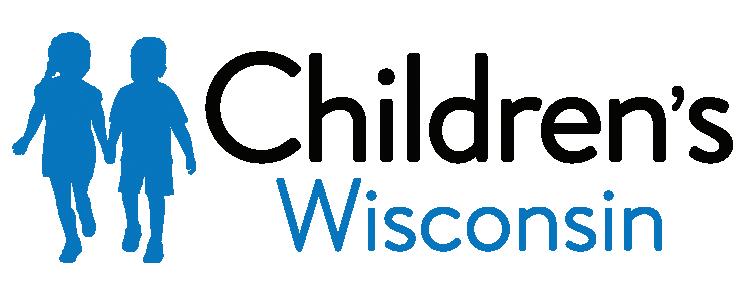
Where Your Money Goes:
Donations support Children’s ability to provide the best and safest care for kids. That includes caring for the whole child by eradicating disease, innovating health care, empowering families to build strong communities and creating solutions for mental and behavioral health. Funds help improve patient experi ence and support education, research and amenities that help provide care to kids and families in Wisconsin.
8915 W. Connell Ct. 414-266-2000 giving.childrenswi.org
December 2022 63DONATE NOW! milwaukeemag.com/giveback
Cameron Apel having fun after receiving treatments and celebrating the Bucks with Dr. David Margolis.
SPONSORED CONTENT
MILWAUKEE SYMPHONY ORCHESTRA
Healing Through Music
EACH SPRING, Milwaukee Symphony Orchestra musicians embark on a unique and touching project: working one-on-one with domestic violence survivors to write a customized lullaby as a form of healing.
“We’ve created 38 unique lullabies with this program,” Hannah Esch, MSO’s senior education and engage ment manager, says about the MSO Lullaby Project. “That’s 38 people we’ve served.”
The program was first started by Carnegie Hall’s Weill Music Institute, and the MSO brought it to Milwaukee six years ago.
The MSO partners with Sojourner Family Peace Center, a local organi zation that provides domestic violence prevention and intervention services, to run the project. The goal is to strength en the bond between a parent and a child through the lullaby.
While serving mothers and grand mothers affected by domestic violence, the Lullaby Project has also broadened its reach to fathers and grandfathers.
“We’re so proud [that] we’ve had two incredible dads step forward,” says Esch.
The lullaby process begins each February with the participants writing down memories about their children that are used to develop lyrics. They work with their MSO coach to put music to the words.
“It ended up being a really healing part of my journey,” says one mother who participated in the program.
“Whenever I thought about my kids, I thought about the hard times. It was a turning point for me to remember the good times.”
That mother had no professional music experience, but she practiced with a voice coach and performed her lullaby at the Celebration Concert, which is hosted each June at the end of the project.
“It was really special to have sym phony performers play live with me, to hear the instrumentals behind me,” she says. “It was the most special thing I’ve had in my life.”
What We Do:
The Milwaukee Symphony Orchestra is among the finest orchestras in the nation. Since its inception in 1959, the MSO has found innovative ways to give music a home in the region, develop music appre ciation and talent among area youth, and raise the national reputation of Milwaukee.
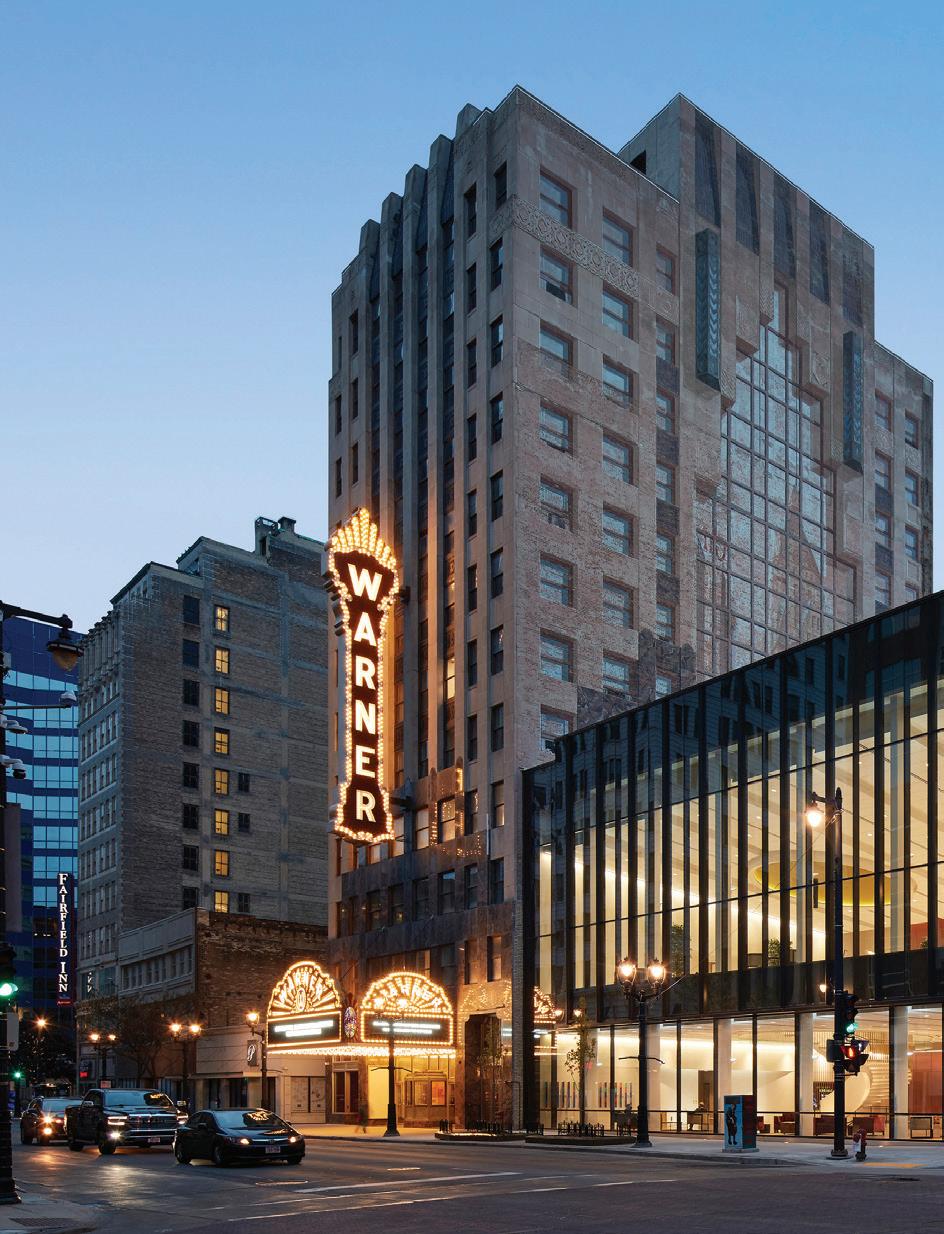
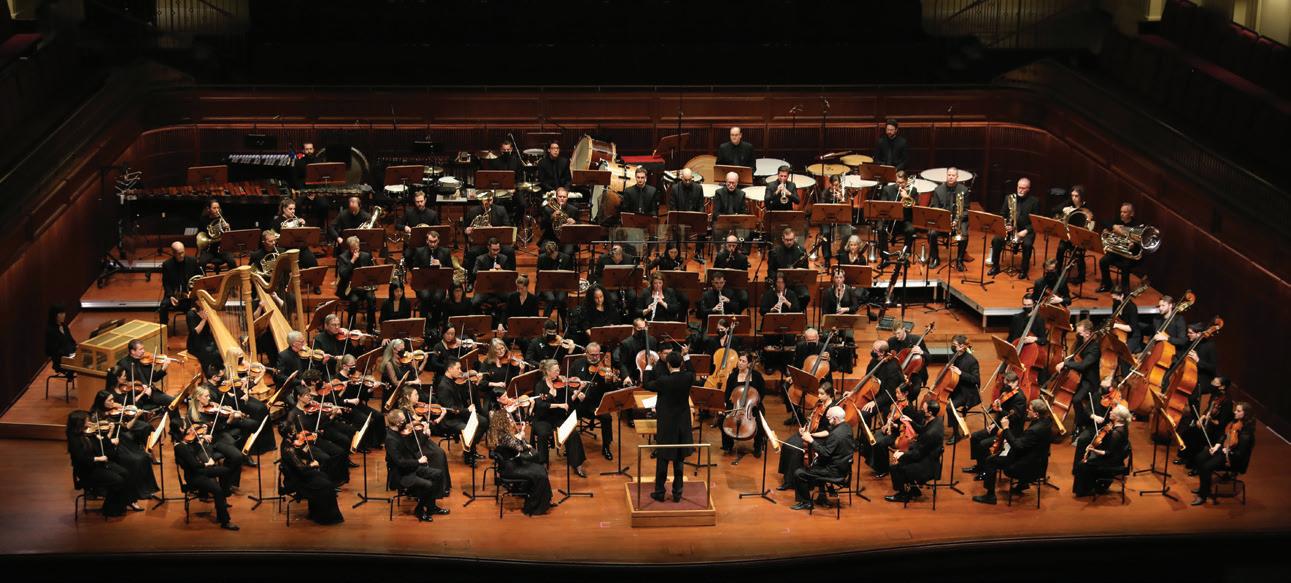
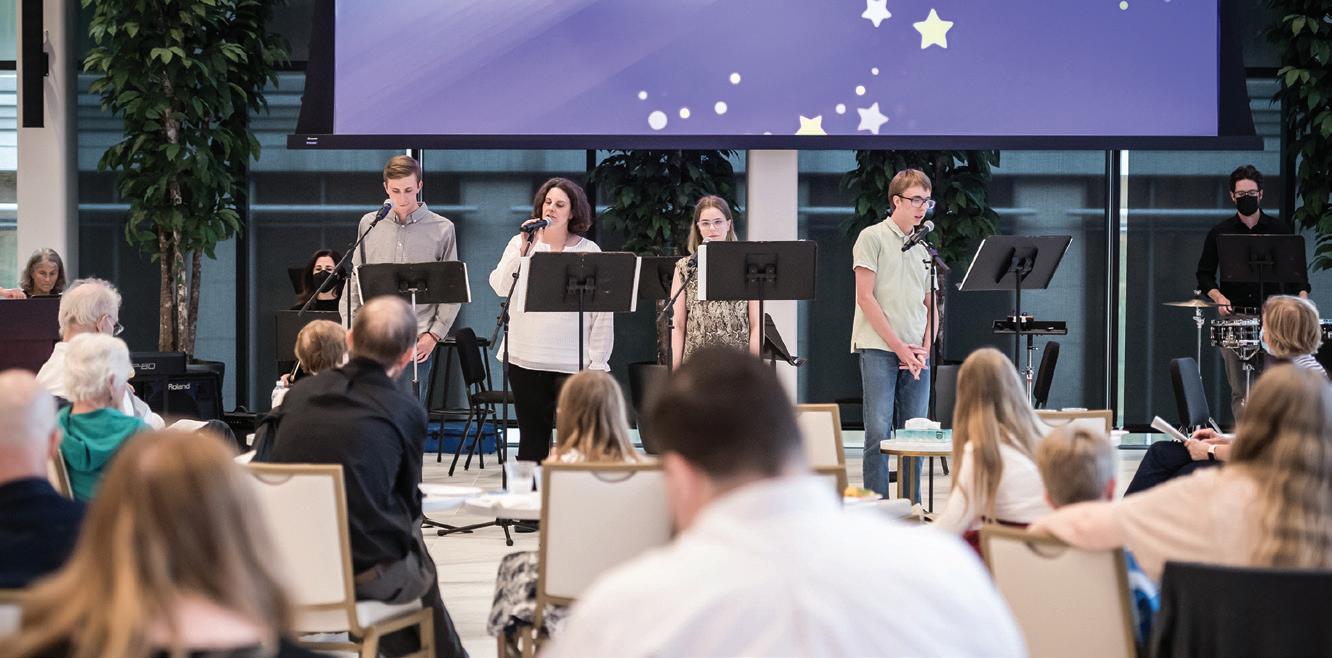
The MSO’s Lullaby Project supports domestic violence survivors by partnering them with MSO musicians to create personalized lullabies for their children.
Where Your Money Goes:
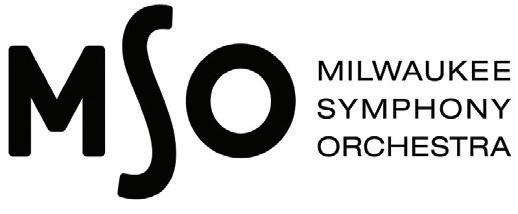
Donations support many programs at the MSO, from education initiatives and community programs like the Lullaby Project to the Annual Fund to support orchestra operations.
212 W. Wisconsin Ave.
To Give: 414-226-7852
For Tickets: 414-291-7605 mso.org
64 milwaukeemag.com
Find out more on the MilMag Facebook video on Dec. 27 at noon.
SPONSORED CONTENT
Overcoming Adversity
IN JANUARY, SEBASTIAN was released from prison after three years. As a condition of his parole, he stayed at a residential reentry center in Mil waukee that was run by Wisconsin Community Services. For Sebastian, this turned out to be a great place to begin the next phase of his life.
“I was given every opportunity while I was there to make sure I had everything I needed to be successful,” Sebastian says. At WCS, he worked with staff to get ready for his new life – from signing up for health insurance to setting personal goals and determining what career to pursue. A few weeks after he left the residential reentry center, he returned to WCS to apply for a job. He was a perfect fit for an open position and now works as the facilities maintenance supervisor, managing upkeep for all 19 WCS locations.
“It was very easy for me to transition out of the residential reentry center,” Sebastian says. “WCS offers some of the most functional ways to provide services for people who are often forgotten about.”
For more than 110 years, WCS has served individuals who have been involved, or at risk of becoming involved, in the justice system. With programs across southeastern Wisconsin, including Milwaukee, Jefferson, Waukesha and Kenosha counties, WCS serves more than 15,000
people each year with programs that create opportunities to overcome adversity. This includes services for justice-involved individuals as well as services for youth and adults with behavioral health, substance use or other life needs. “We provide services for individuals, who, by and large, would not get the services and support that they need, if not for the work that we do,” says Clarence Johnson, WCS president and CEO. “Our impact is significant, and the work we are doing is vitally important for the community.”
Most WCS programs receive government funding, but some do not, or only receive partial funding, such as the WCS Center for Driver’s License Recovery and Employability, which helps low-income people who’ve lost their license, often due to the inability to pay a fine; or NOVA House, a residential substance use recovery program set to open early next year. This work, and much more, depends on private donors. “It’s good to know that there are organizations like this that provide programs and services to people like me, who have not had all the resources,” Sebastian says. “And now I’m in the best job I’ve ever had, I’m in the best place I’ve ever been mentally and physically, and I’m happier than I’ve ever been. Honestly, I have to say that it’s because of WCS.”
What We Do:
Wisconsin Community Services operates over 60 programs for underserved populations in southeastern Wisconsin, including those involved in the justice system and those with behavioral health needs. For the formerly incarcerated, WCS operates reentry and reintegration programs as well as employment training and workforce development.
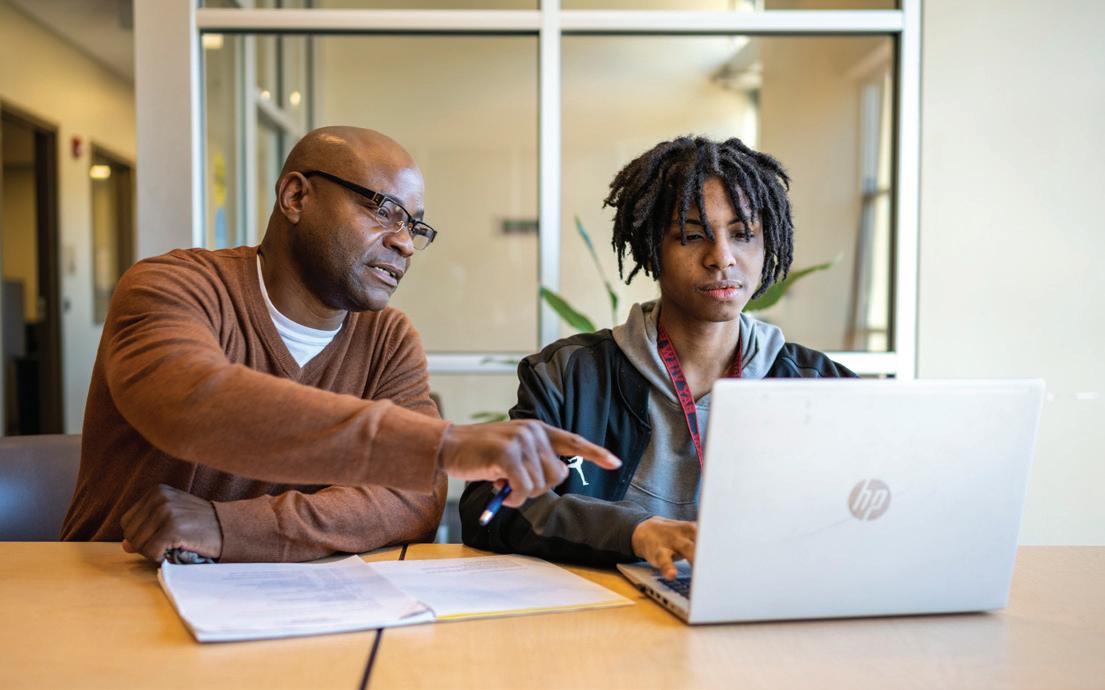
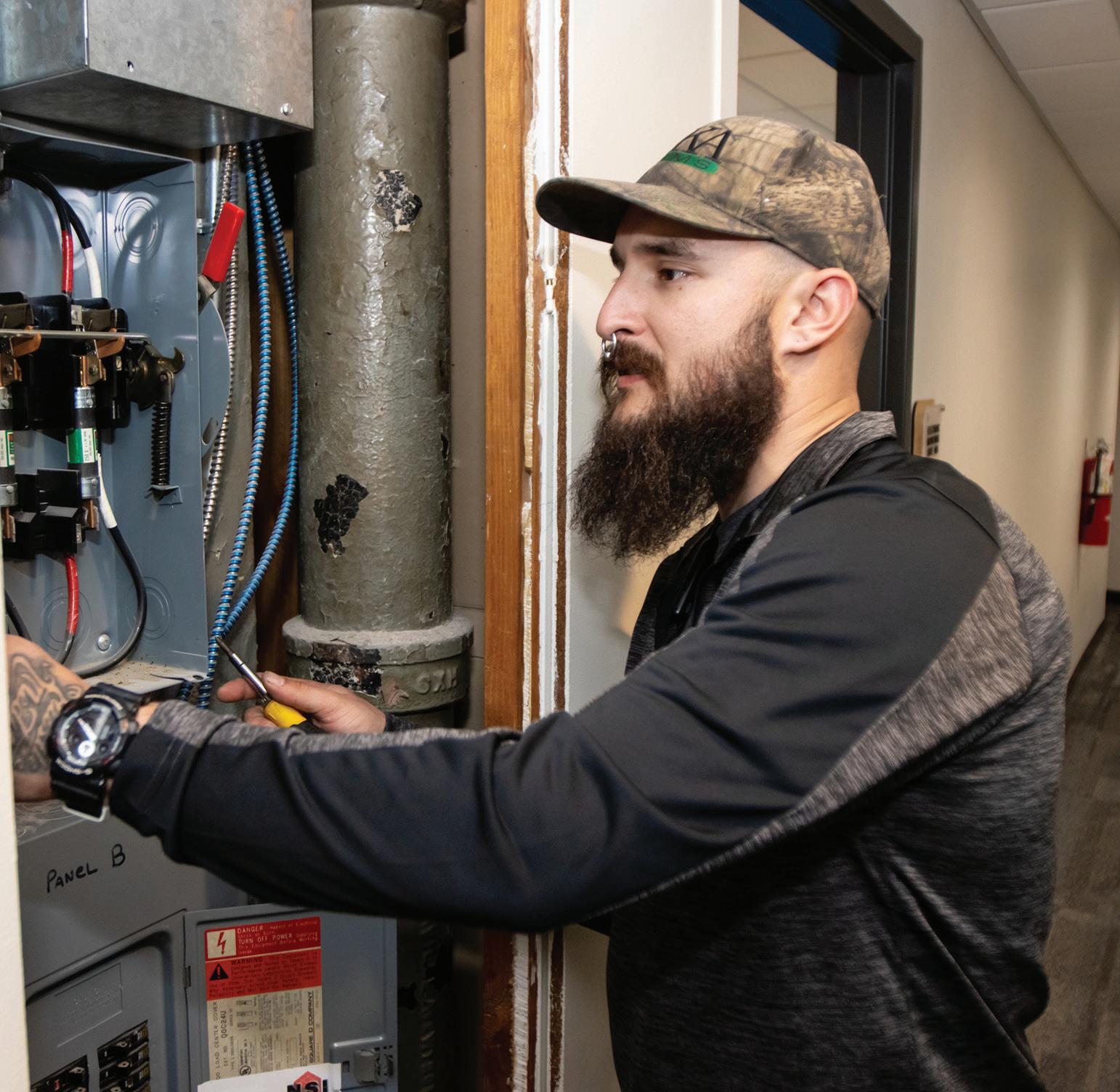
WCS also offers programs for people who have behavioral health needs, providing substance use recovery and treatment, peer support and mental health services.
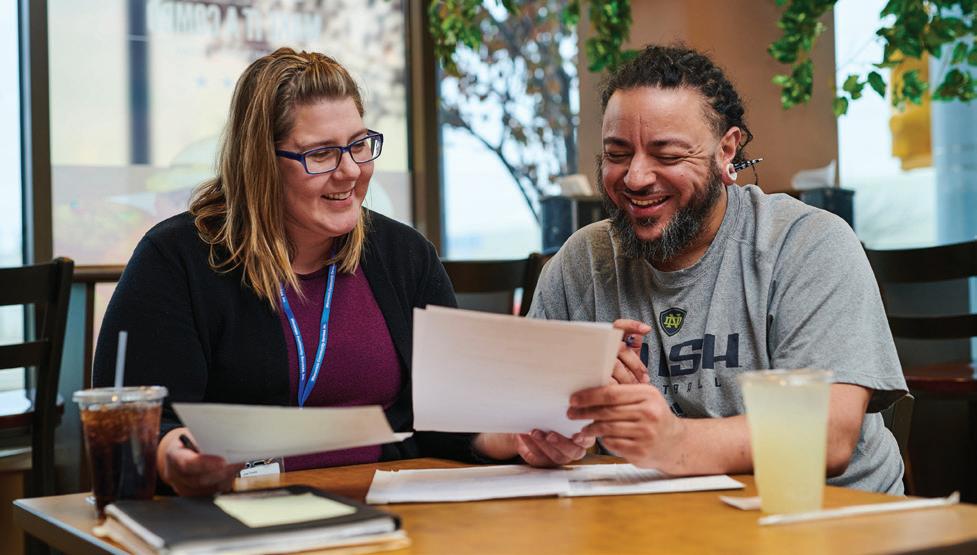
Where Your Money Goes:
Donations to WCS help to fund programs such as the driver’s license recovery, to meet the basic needs of people receiving services or to provide program enhancements.
3732 W. Wisconsin Ave., Suite 320 414-290-0400 wiscs.org
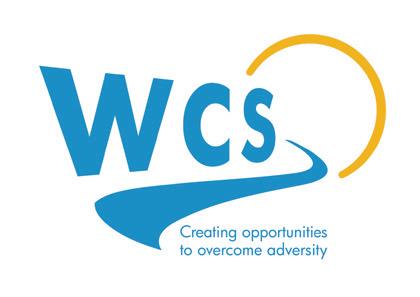
December 2022 65DONATE NOW! milwaukeemag.com/giveback
Find out more on the MilMag Facebook video on Dec. 6 at noon.
SPONSORED CONTENT
WISCONSIN COMMUNITY SERVICES
THE SALVATION ARMY
What We Do:
The Salvation Army is a worldwide charitable organization. In Milwaukee County, it provides food for the hungry, shelter for the homeless, thousands of backpacks, coats and toys for underprivileged kids, and relief for disaster victims. “Millions of Americans are struggling,” says Steve Woodard, the divisional secretary for The Salvation Army’s Milwaukee Area Command. “The pandemic, inflation, evictions, job loss, you name it. The Salvation Army is committed to providing help for those immediate needs, but also helping to address those long-term ones.”
In 2021, The Salvation Army served 18,725 people through its five food pantries in Milwaukee County. It served 44,540 meals during Feed the Kids, its summer mobile feeding program, and distributed 38,072 toys to 5,927 children for Christmas. Its health clinic served 1,050 patients, and its coat distribution service gave out 3,588 coats in January and November. And over 2,000 backpacks filled with school supplies were given to Milwaukee and Waukesha schoolchildren.
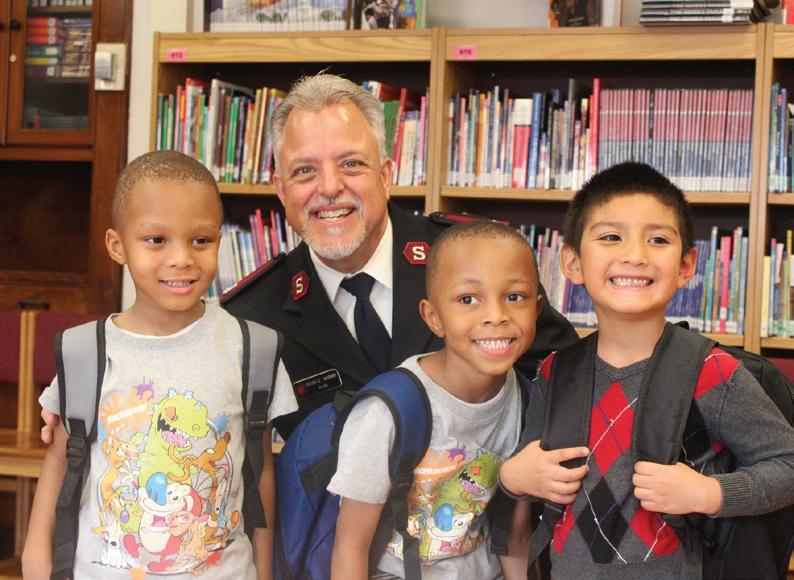
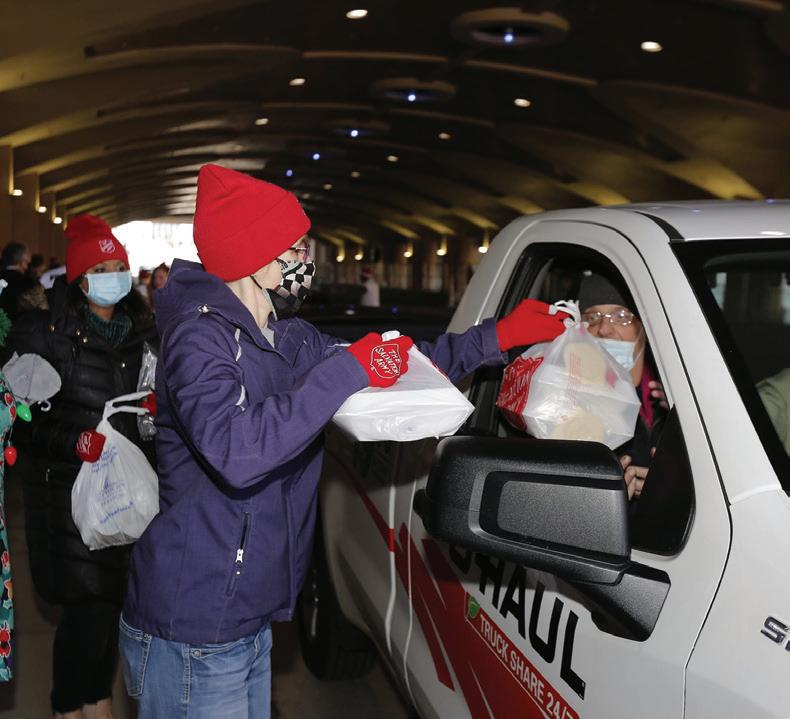
Where Your Money Goes:
Donor money is used to support The Salvation Army’s dozens of programs and services provided to thousands of individuals and families across Milwaukee County. Eighty-seven cents of every dollar raised is directly used to support those programs and services. “We’re a worldwide organization, but your donations to The Salvation Army stay here locally,” Woodard says. “They’re helping those in need in Milwaukee.”
The Salvation Army is also seeking volunteers for its many programs, including bellringers for its Christmas Red Kettle fundraising campaign. If you’d like to volunteer, visit registertoring.com.
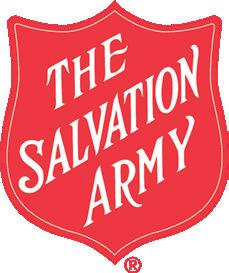
11315 W. Watertown Plank Rd., Wauwatosa 414-302-4300 SAMilwaukee.org
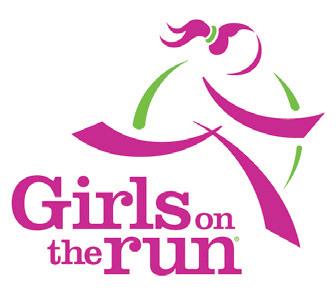
GIRLS ON THE RUN
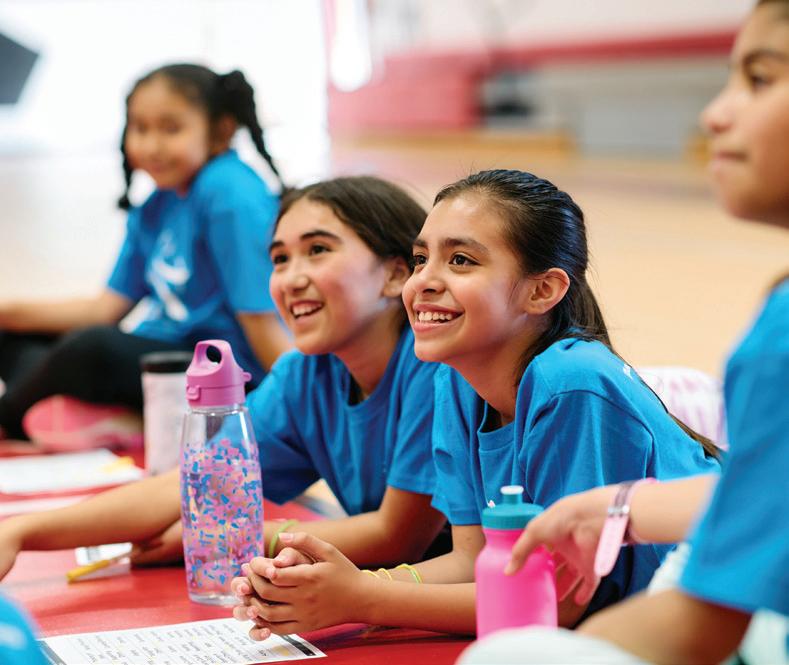
What We Do:
Girls on the Run offers two fun, evidence-based after-school running programs for girls in third through eighth grade, which inspire participants to build their confidence, kindness and decision-making skills. Since 1996, GOTR has served over 2 million girls across the country. “The program is so much more than a running program,” says Tina Jones, executive director for Girls on the Run of Southeastern Wisconsin. “The girls are learning life skills.”
GOTR focuses on the connection between mind and body through a combination of targeted lessons and physical activity that instills confidence and nurtures care and compassion in every participant. “I joined Girls on the Run and it changed my life,” says Colleen, age 9. “Now I have people who understand me.”
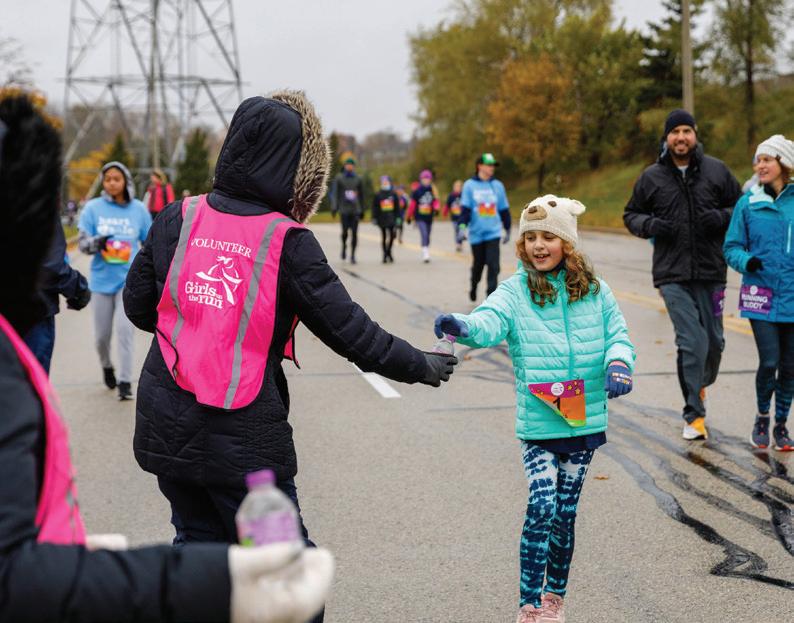
Where Your Money Goes:
The generosity of donors and fundraisers ensures that more girls can experience the impact GOTR provides. GOTR programs are supported by individual donations, grants, sponsorships and special events fundraisers, and approximately 50% of participants need further financial assistance to join the program. Donations are used to subsidize the cost of the program for each participant, train each volunteer coach and ensure they are CPR certified, supply teams with program supplies and healthy snacks, as well as provide any GOTR participant with running shoes, if needed.
You can volunteer as a coach or at an event, including the 5K celebrations, annual Sneaker Soiree and Golf Fore Girls fundraiser. Or you can sign up to fundraise as a SoleMate, and train for an athletic event while raising funds for GOTR.
5775 N. Glen Park Rd., Suite 203, Glendale 414-367-8171 girlsontherunsoutheasternwi.org
66 milwaukeemag.com SPONSORED CONTENT
Find out more on the MilMag Facebook video on Dec. 27 at noon.
Find out more on the MilMag Facebook video on Dec. 6 at noon.
Suorting the Workforce of Today – and the Future
GOODWILL INDUSTRIES of Southeastern Wisconsin and Metropolitan Chicago has had a banner couple of years. In 2021, Goodwill served over 42,000 people in southeastern Wisconsin and metropolitan Chicago, including more than 9,000 in Milwaukee County, and made over 4,000 job placements. The organization’s staff ing and recruiting agency Goodwill TalentBridge and its Workforce Connection Centers partnered with the United Way of Greater Milwaukee and Waukesha County to fill high-demand nursing roles. The partnership, United for Good, included paying for career training for potential certified nursing assistants and helping place them in jobs.
“Goodwill is a workforce development leader,” says Angela Adams, Goodwill’s chief communications and diversity officer. “Goodwill matches job seekers and employers in the community and provides employment opportunities in our own businesses.”
This year, the organization also helped launch the Racine Financial Empowerment Center, a joint effort with the city of Racine and
Housing Resources Inc. to provide free one-onone financial counseling to Racine residents. In its support of the local Boys & Men of Color efforts, Goodwill supports community learning and engagement opportunities for diverse boys and men to connect and grow, together. And Goodwill partnered with BMO Harris Bank to recruit, train and place customer experience representatives at area bank branches.
“Collaborative partnerships are essential to supporting our local workforce, advancing racial equity and creating more equitable opportunities for community members across our city,” Adams says.
Along with its many partnerships and joint initiatives, Goodwill helps train people for careers in many fields, and provides them with services to help them succeed, including education, transportation, child care and more.

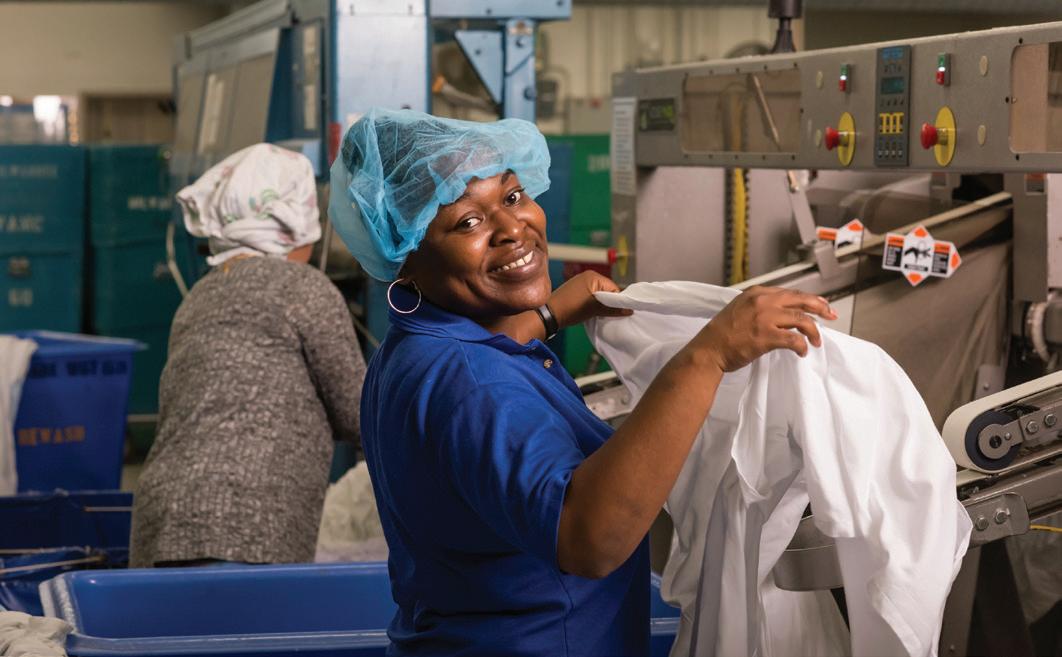
“Goodwill believes in the power of work,” says Adams, “and we are working to transform lives and communities by creating access to im portant resources and equitable opportunities.”

What We Do:
Goodwill Industries of Southeast ern Wisconsin and Metropolitan Chicago is a workforce develop ment leader with a mission to provide training, employment and support services.
Goodwill matches job seekers and employers and provides employment opportunities inside the organization, across all career levels, to support its retail, laundry and staffing businesses.
Where Your Money Goes:
When you shop at or donate to Goodwill, you’re helping its workforce development programs and community-based support services.
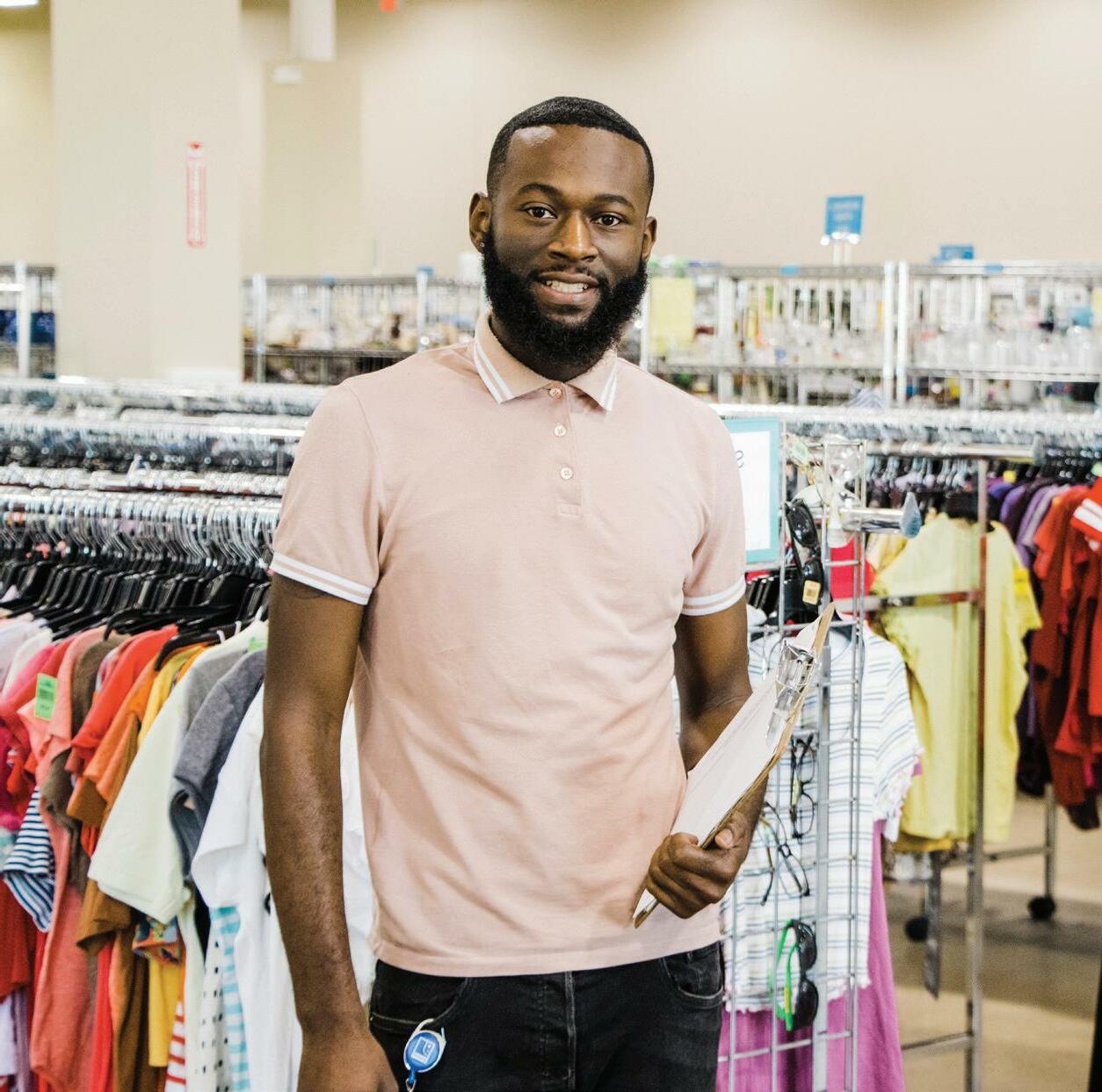
People can support Goodwill’s mission by donating new and gently used items to their local Goodwill store and donation center, shopping at Goodwill in-person or online or by making a financial contribution at good willsew.com/how-you-can-help.
6055 N. 91st St. 414-353-6400 goodwillsew.com
December 2022 67DONATE NOW! milwaukeemag.com/giveback SPONSORED CONTENT
GOODWILL: SOUTHEASTERN WISCONSIN AND METROPOLITAN CHICAGO
Providing Meals Across Eastern Wisconsin
WHEN SCOTT MARSHALL was growing up on the South Side, he, his brother and their mother relied on food pantries on-and-off to make ends meet. Decades later, Marshall is now the vice president of development and communications at Feeding America Eastern Wisconsin, the largest hunger-relief organization in Wisconsin.
“We help hundreds of thousands of people, but when I think about it, I like to think about the individual,” Marshall says. “The way I grew up, now I picture the single mother who is trying to work to keep the heat on, to keep the car running. I don’t want her to worry about having food to eat.”
Feeding America Eastern Wisconsin buys food in bulk and distributes it across 35 Wisconsin counties from its Milwaukee and Appleton locations. Over 150 food pantries and shelters rely on supplies from Feeding America Eastern Wisconsin to continue their work in Milwaukee – and 400 rely on it across the eastern side of the state.
In 2016, Feeding America Eastern Wisconsin
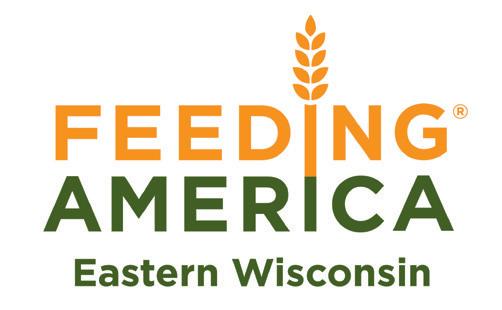
implemented the Farm Link program. The farm-to-food-pantry initiative uses donor dollars to purchase fresh produce from Wis consin farmers to be given out at pantries. The program currently partners with five farms, but Feeding America Eastern Wisconsin is looking to expand its support of local farmers.
“We’re really ramping that program up,” Marshall says. “It’s positive on two fronts. We’re getting the best, nutritious Wisconsin produce into the hands of those in need, and we’re supporting local farmers.”
Due to the amount of food Feeding America Eastern Wisconsin receives as donations, as well as its bulk-buying partnerships with suppliers, every dollar donated translates to $10 in groceries. But inflation continues to stress the operation, from food prices to transportation and wages, and Feeding America Eastern Wisconsin is looking for donor support to help make that up. “A donation to our food bank is a donation to your community,” Marshall says. “It’s going to help your neighbors in a moment of hardship.”
What We Do:
Feeding America Eastern Wisconsin is the largest local hunger-relief organization in the state. Its goal is to solve hunger and address its root causes.

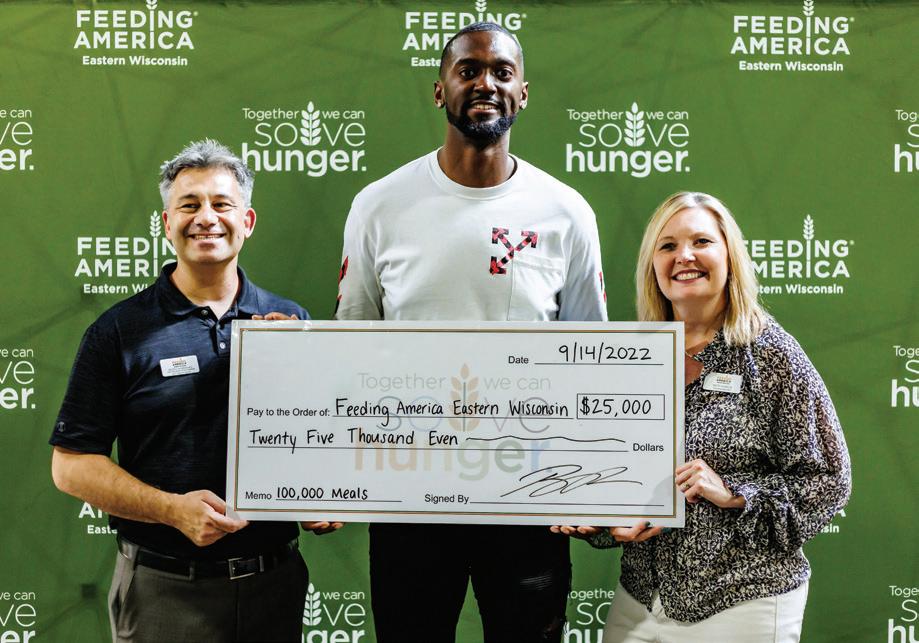
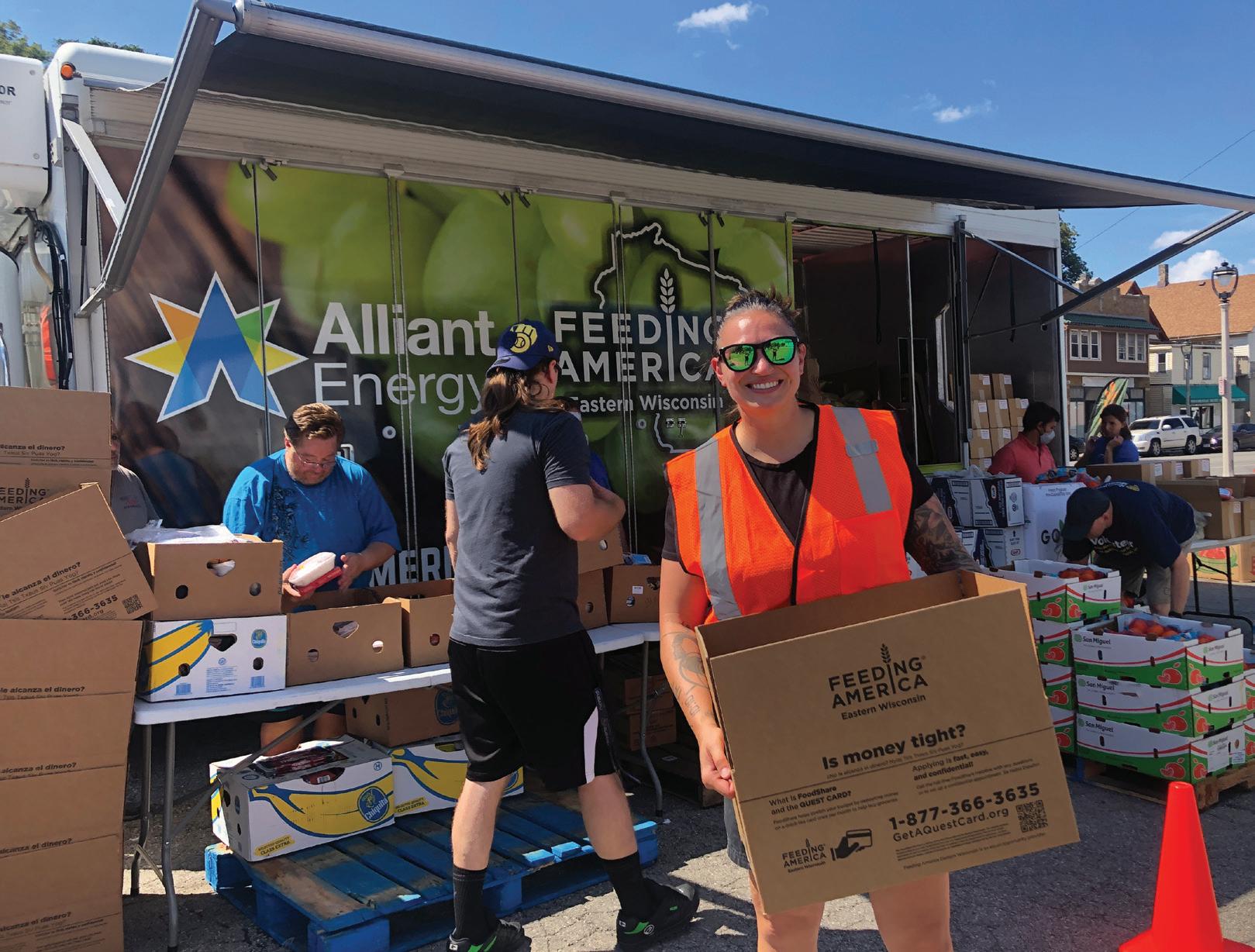
The organization works with nearly 400 hunger-relief programs to provide more than 33 million pounds of food annually to over half a million people across 35 counties.
Where Your Money Goes:
Donations help feed people facing hunger. Feeding America Eastern Wisconsin uses donor dollars to fund its Farm Link program, buying fresh produce from farmers to stock food pantries.
Feeding America Eastern Wis consin relies on roughly 30,000 hours of volunteer work a year. You can find volunteering dates on Feeding America Eastern Wisconsin’s website.
1700 W. Fond du Lac Ave. 414-931-7400
FeedingAmericaWI.org
SPONSORED CONTENT 68 milwaukeemag.com
Find out more on the MilMag Facebook video on Nov. 29 at noon.
FEEDING AMERICA EASTERN WISCONSIN
THE NATURE CONSERVANCY
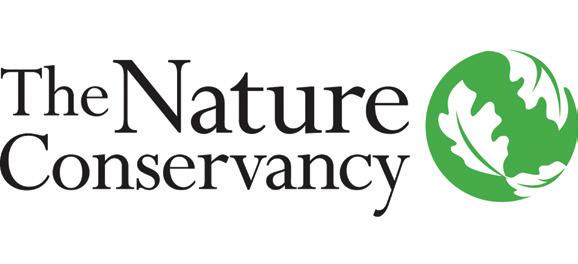
Connecting People and Nature
THE NATURE CONSERVANCY’S efforts to protect important natural areas began in 1951 with citizen action to protect an old-growth hemlock forest from development. Those early efforts quickly spread across the U.S., and Wisconsin became one of the early chapters of The Nature Conservancy (TNC). Today, TNC has helped protect more than 242,000 acres of Wisconsin’s beautiful and diverse natural places.
In recent years, the organization has also turned its attention to combatting climate change, working with farmers to protect soil health and clean water, and promoting sustainability and increased access to nature in urban areas.
“There’s a growing need to add nature to the things that contribute to quality of life in cities,” says Lamont Smith, TNC’s Milwaukee program manager. “That in cludes decreasing the amount of concrete covering the cityscape and replacing it with green infrastructure, like native plant rain gardens, and supporting community-based
conservation efforts.”
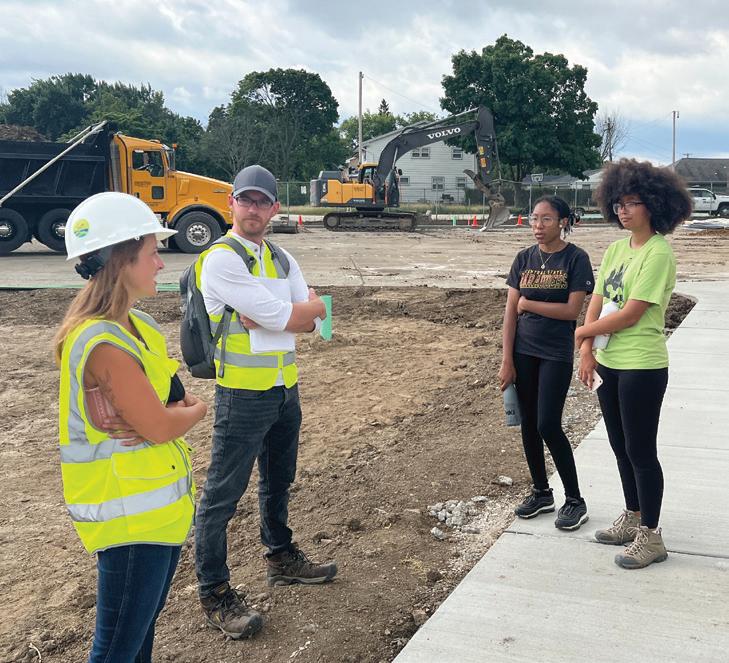
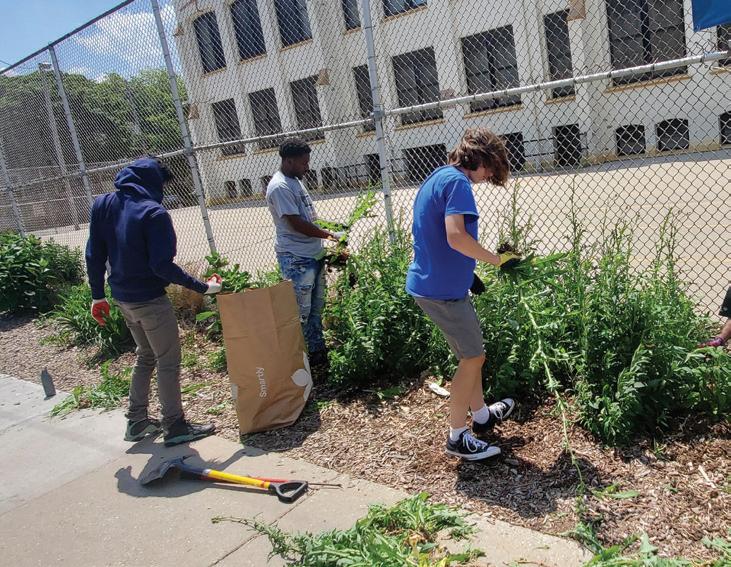
In Milwaukee, TNC is supporting the efforts of groups like Reflo – a nonprofit that builds green infrastructure and advocates for sustainable water use – to give people of all ages more opportunities to learn about conservation by participating directly in the work.
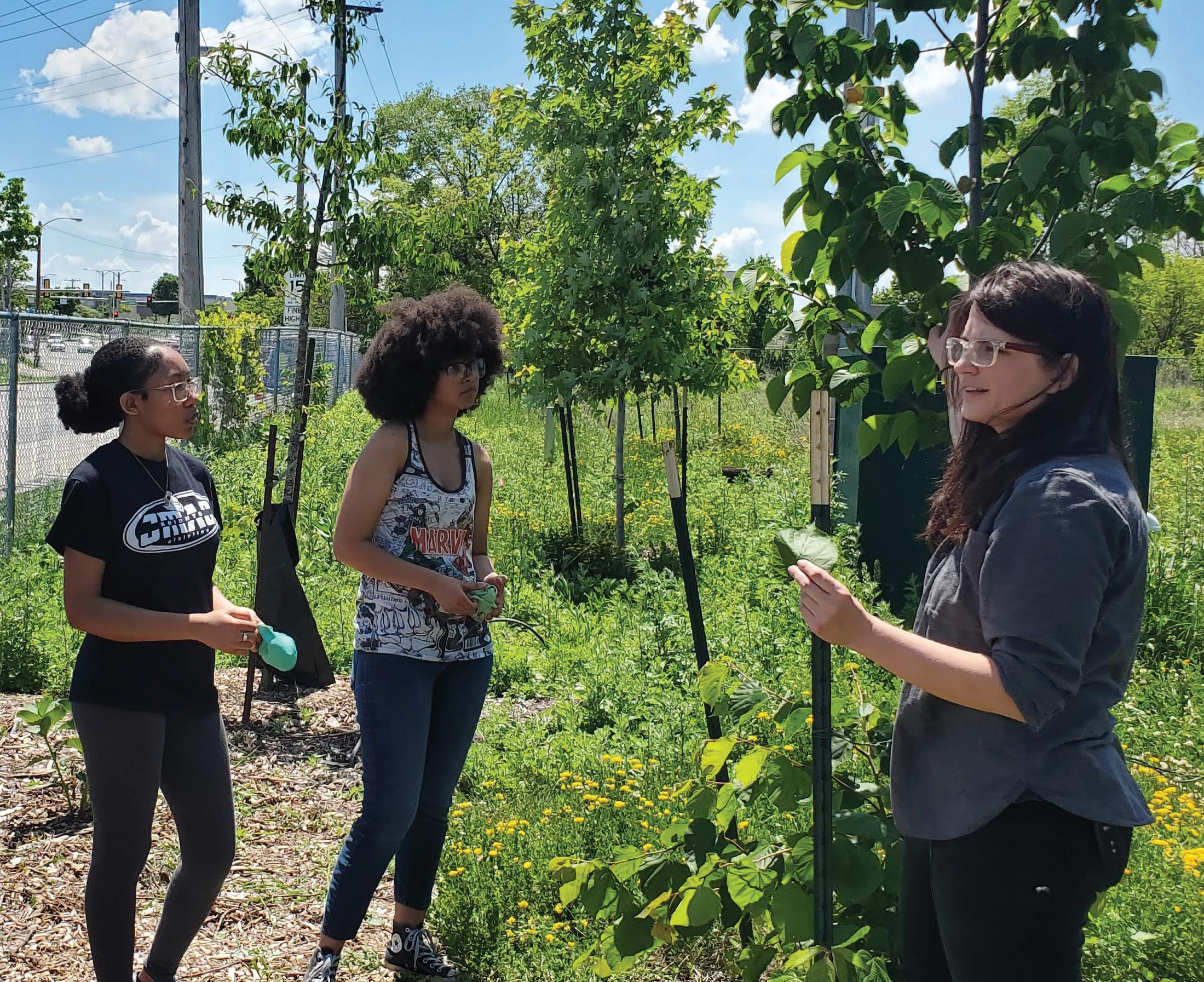
This year, for example, Dontae Luttrell, a North Division High School student, got an internship at Reflo to assist with its program to design greener, healthier schoolyards. Lut trell visits schools and assesses the quality of their green space. “At the end of the process, we go to a science fair and show Milwaukee Public Schools elementary students what we came up with,” says Luttrell.
“Environmental issues and climate change are gaining more attention these days, and rightfully so,” says Smith. “Everything we do in Milwaukee is about adding to that momentum and collaborating with local organizations like Reflo to find solutions to these challenges.”
What We Do:
The Nature Conservancy uses science to develop innovative solutions to the challenges people and the environment face today, from climate change and habitat loss to growing healthy food and keeping water clean.
Where Your Money Goes:
Donations support the protection and care of Wisconsin’s lands, waters, and wildlife, and help promote positive environmental and climate change policies.
Funds also support TNC's work with partners in Milwaukee to use nature-based solutions to more equitably improve people's lives and enhance Milwaukee's natural environment.
633 W. Main St., Madison 608-251-8140 nature.org/wisconsin
December 2022 69DONATE NOW! milwaukeemag.com/giveback
Find out more on the MilMag Facebook video on Dec. 13 at noon.
SPONSORED CONTENT
Photos Courtesy of Reflo
THE WOMEN’S CENTER
What We Do:
Founded in 1977, The Women’s Center in Waukesha supports adult and child survivors of domestic violence, child abuse, sexual assault and human trafficking. The Women’s Center welcomes and serves survivors of all ages, races, gender identities, sexual orientations, abilities, nationalities and immigration status.
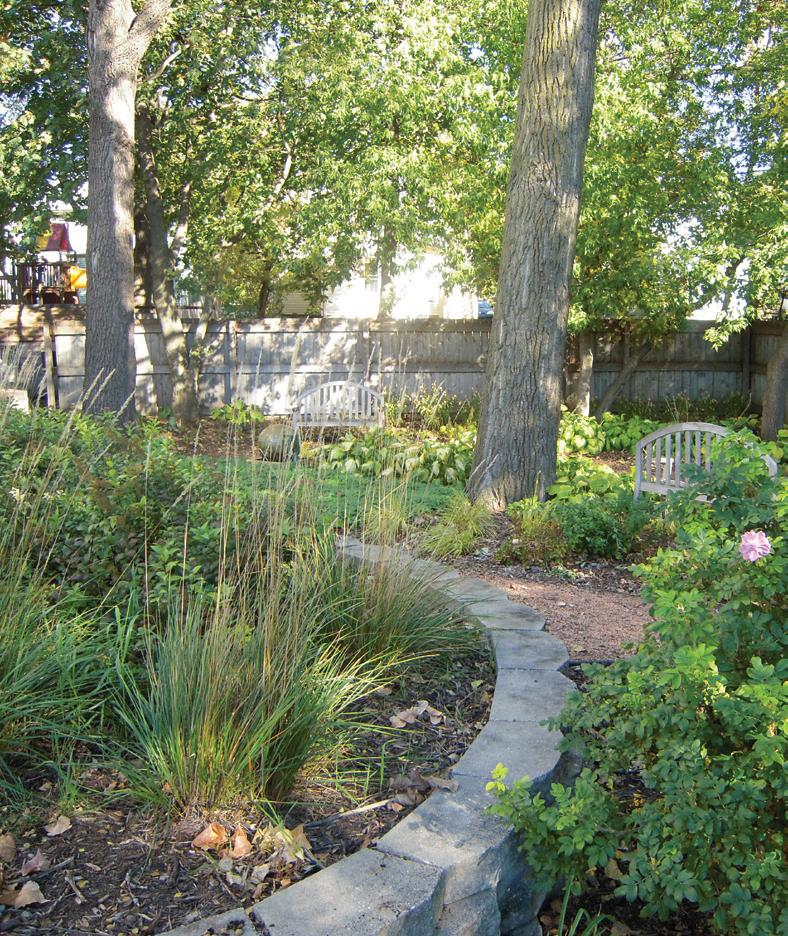
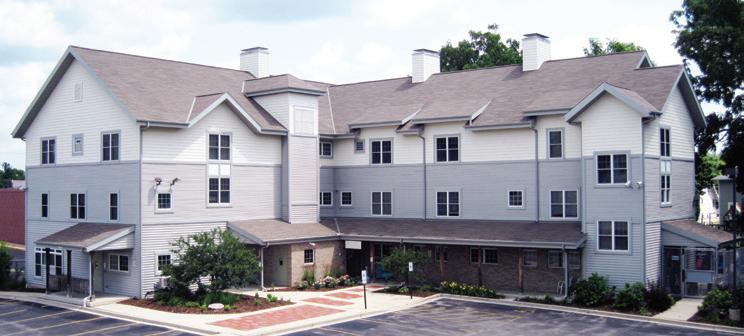
The center operates an emergency shelter, 24-hour hotline, one-on-one advocacy and support, employment and life skills training, support groups and much more. It uses a client resource fund to help survivors overcome financial barriers to care. “It’s all about self-care and preservation,” says Angela Mancuso, the center’s executive director. “We’re in the life-or-death field.”
Where Your Money Goes:
Donations support The Women’s Center programs and services, including the emergency shelter, 24-hour hotline, one-on-one support, legal advocacy, family support, substance abuse and mental health support, transitional living, employment counseling and life skills development, children’s programming and on-site child care, community education and violence prevention, and the center’s rape crisis response.
The Women’s Center runs a volunteer program which welcomes individuals and groups to help with outdoor maintenance, donation sorting and assembling food boxes. The center is also seeking donated items on its Amazon wish list, found through its website, such as gas cards, Tracfone minutes or nonperishable food items.
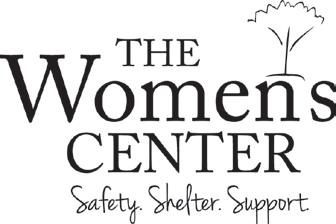
505 N. East Ave., Waukesha 262-542-3828 twcwaukesha.org
MAKE-A-WISH WISCONSIN
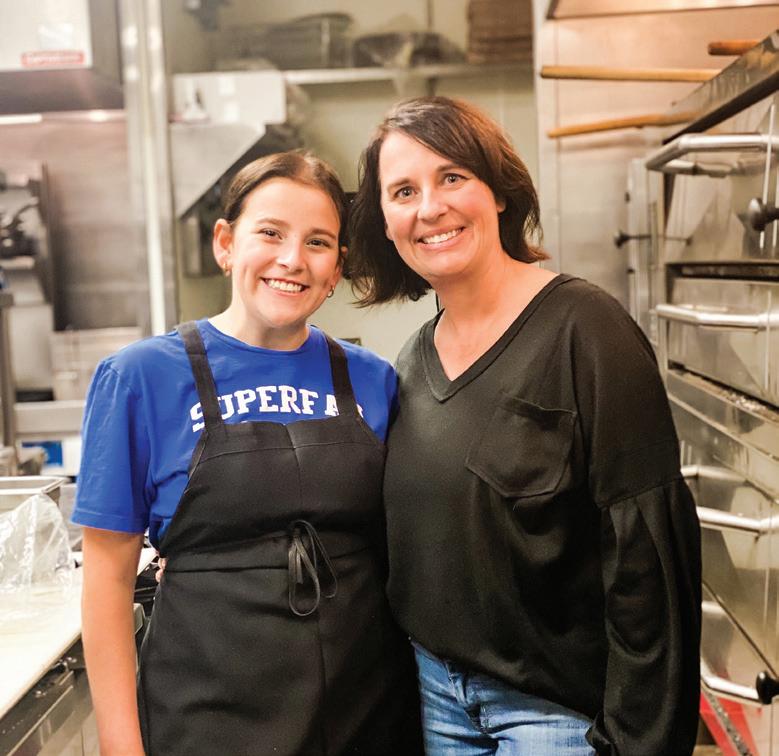
What We Do:
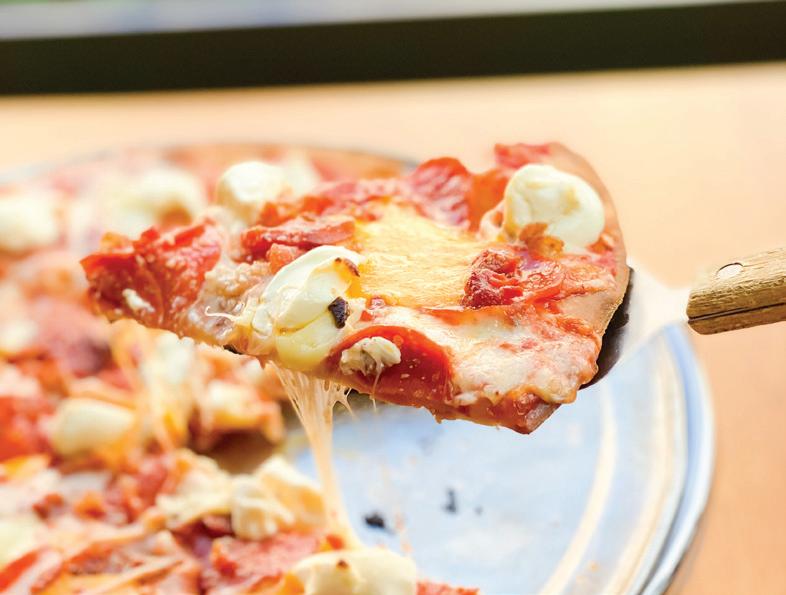
Make-A-Wish Wisconsin creates life-changing wishes for children battling critical illnesses. It serves kids between the ages of 2½ and 18 who have been diagnosed with a malignant, progressive or degenerative condition. Research shows children who have wishes granted can build the physical and emotional strength they need to fight their illness. A wish gives a child renewed energy and strength, brings families closer together and unites communities.
Pizza Man’s In Dough We Grow program partners the restaurant with a youth-focused nonprofit to create a custom pizza, with 100% of net proceeds from it going to the nonprofit. For three months, the special pie will be sold at Pizza Man’s locations in Milwaukee and Wauwatosa and at Pizza Man Pronto in Mequon. This quarter, Pizza Man is partnering with Make-A-Wish Wisconsin.
Where Your Money Goes:
Money from Pizza Man’s specialty Make-A-Wish pizza goes directly to the Make-A-Wish Foundation. Funds raised by Make-A-Wish Wisconsin are used to create life-changing wish experiences, such as to go on a shopping spree, to be a ballerina or police officer, to go to Hawaii or to meet the Bucks.

Make-A-Wish Wisconsin
11020 W. Plank Ct., Suite 200, Wauwatosa; 262-781-4445 wish.org/wisconsin
Pizza Man 2597 N. Downer Ave.; 11500 W. Burleigh St., Wauwatosa; 6300 W. Mequon Rd., Mequon pizzamanwi.com; pizzamanpronto.com
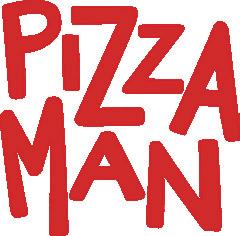
70 milwaukeemag.com SPONSORED CONTENT
Find out more on the MilMag Facebook video on Dec. 27 at noon.
Find out more on the MilMag Facebook video on Dec. 6 at noon.
Increasing Educational and Career Access
WITH OVER TWO DECADES of experience using work-based learning to help Wisconsin youth navigate to technical careers, GPS Education Partners (GPSEd) is now leveraging this ex perience to help Milwaukee-area youth gain equitable access to the workforce. Expanding work-based learning services beyond its own education centers is part of GPSEd’s vision of creating a world where every student can access quality work-based learning to discover a pathway to a productive life.
GPSEd is supporting Milwaukee Public Schools and Central City Cyber School in building a Milwaukee ecosystem of businesses and community organizations ready to support student exposure to and experience in the world of work. “Work-based learning expands student awareness of career opportunities, in creases persistence in the education space, and builds social capital,” says Amanda Daniels, the director of curriculum and instructional design at GPS Education Partners. “We also know that paid work-based learning opportunities on a resume launch individuals
into the workforce at higher wages and into above-entry-level careers.”
Jamar Atkins, a senior at Barack Obama SCTE, found his way to a GPSEd-organized internship by participating in GPSEd career awareness activities at his school. “I learned a lot of new things that I could see myself doing in the future,” Atkins says.
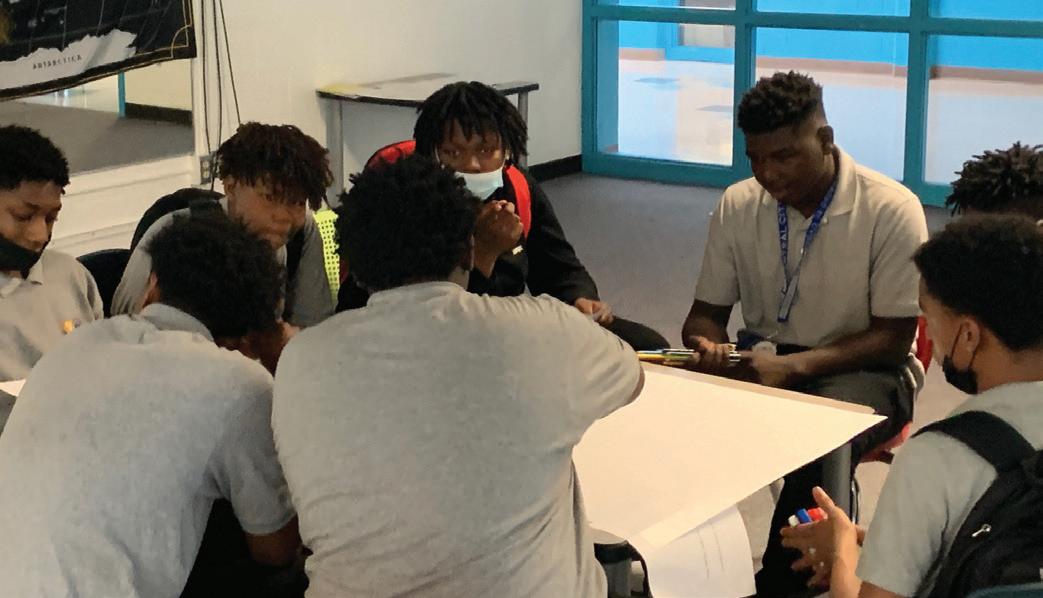
Schools often lack the necessary resources to build and manage the partnerships nec essary for work-based learning. Providing convening services, coaching businesses and school staff to execute high-quality workbased learning, and expanding opportunities to ensure early and frequent work-based learning experiences are just a few examples of how GPSEd is supporting youth in Milwaukee.
“The partnership with GPSEd, Milwaukee Public Schools and community partners is second to none,” says Alex Erdmann, the college and career center adviser at the Barack Obama SCTE. “The on-the-job training and exposure are just what our students need to be set on a trajectory for success.”
What We Do:
GPS Education Partners builds the necessary partnerships to support accessible and high-quality work-based learning opportunities.
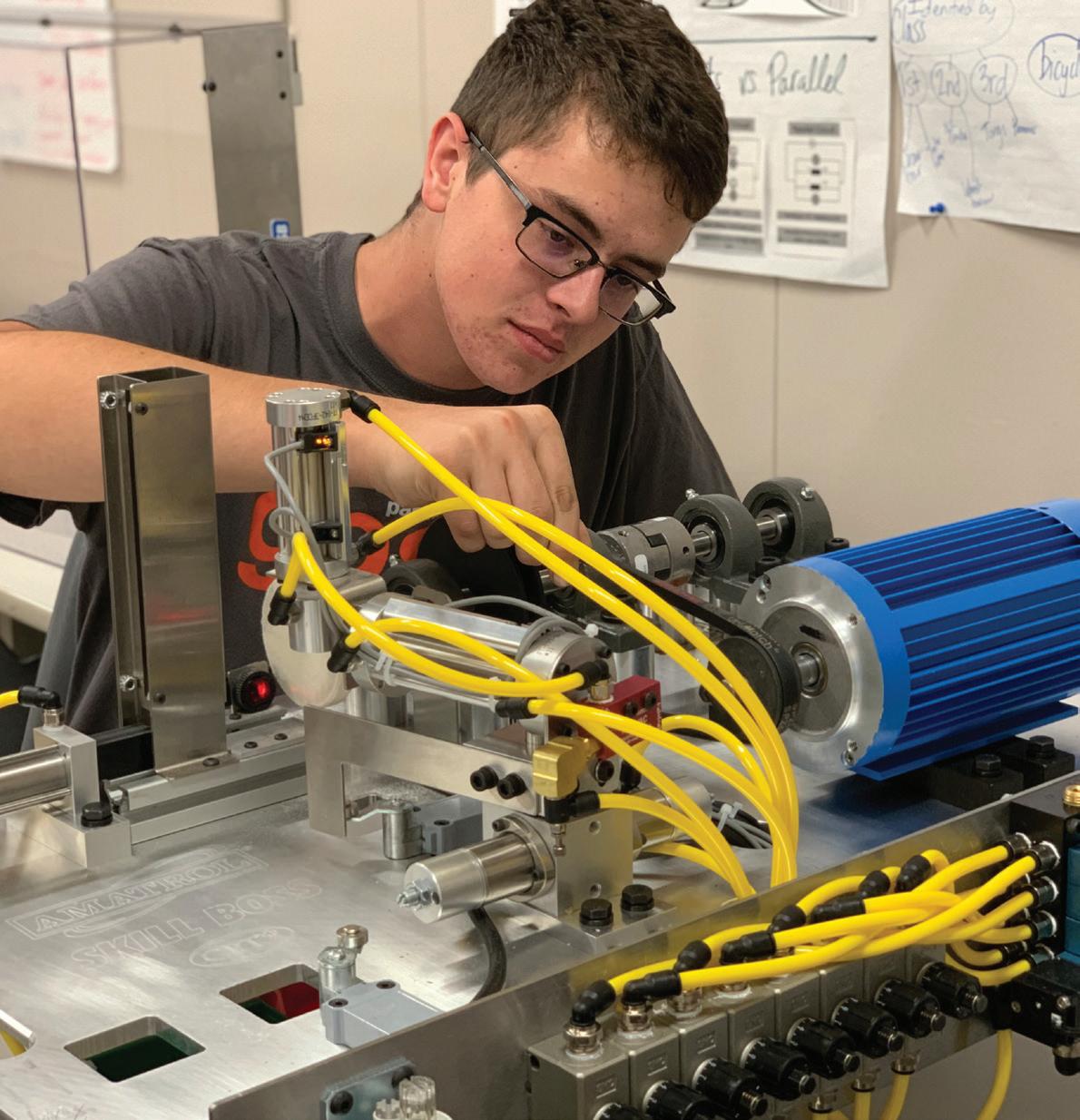
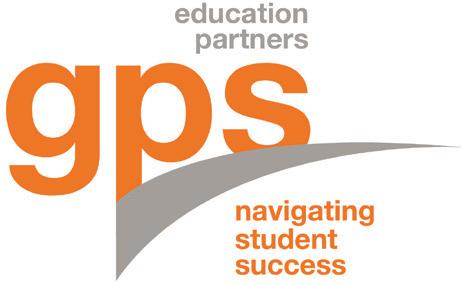
GPSEd’s Youth Apprenticeship Program connects youth to technical careers through an immersive work-based learning environment.
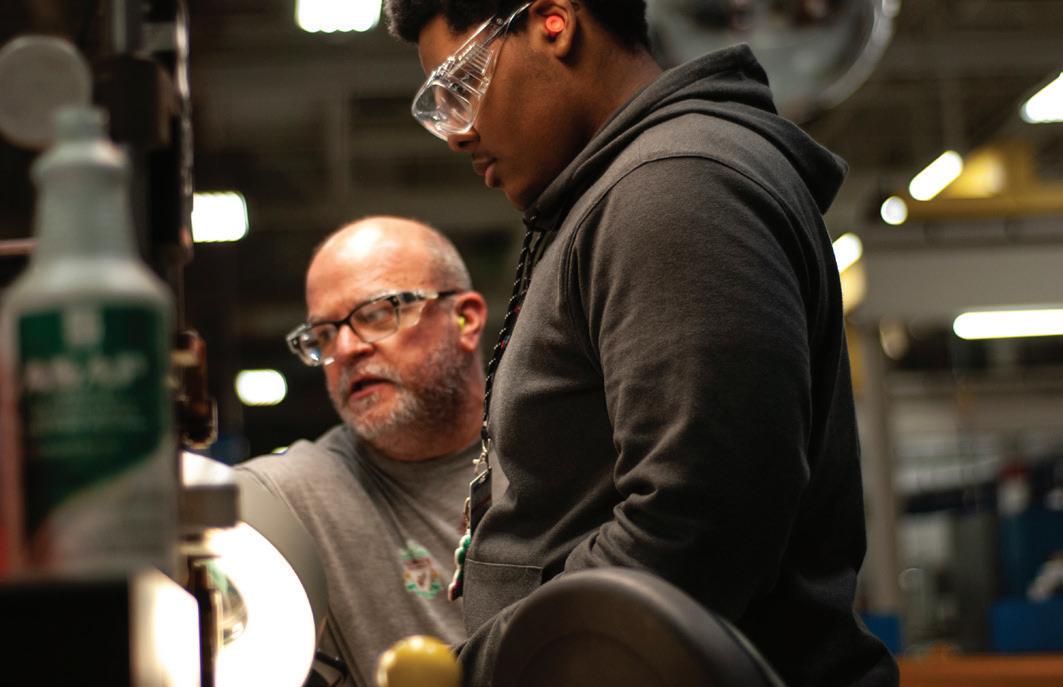
Where Your Money Goes:
Donations help youth access the tools and equipment necessary for their work.
Funds also cover credentialing costs, student preparation for professional work, and training and support for school staff in the execution of high-quality work-based learning.
GPSEd is seeking student mentors, internship and appren ticeship sites, and businesses to host student tours.
N19 W24075 Riverwood Dr., Waukesha 262-226-2001 gpsed.org
December 2022 71DONATE NOW! milwaukeemag.com/giveback
Find out more on the MilMag Facebook video on Dec. 20 at noon.
SPONSORED CONTENT
GPS EDUCATION PARTNERS
CATHOLIC CHARITIES
Serving Neighbors in Need
WHEN A REFUGEE OR ASYLUM SEEKER arrives in this country, the process is overwhelming. In addition to learning a new language and adapting to a new culture, they must navigate a complex bureaucracy to sign up for benefits or receive citizenship. Catholic Charities is trying to make that process easier.
Over the past year, Catholic Charities recruited 160 volunteer lawyers to work with the Afghani population seeking asylum in Wisconsin. After a year here, refugees can apply for residency, and after seven years they will lose their public benefits. “Some cultures don’t have a written language, which makes the process hard for older people to learn,” says Barbara Graham, director of refugee and immigration services at Catholic Charities, which serves immigrants among its many social service programs.
The lawyers are helping refugees and im migrants through citizenship applications, benefits procurement and more, with no financial reward. “As a volunteer lawyer, you get to see the direct impact you make on someone’s life,” says Graham.
Catholic Charities serves refugees, asylum seekers and immigrants from 50
countries. “There are services here that are not provided in their country, such as signing up for health insurance,” says Nancy Munoz, Catholic Charities’ outreach case manager, noting that as some countries, such as Mexico, offer universal health coverage.
Volunteer tutors help children and adults study for their citizenship tests. Study sessions can take place virtually or at a local library branch. “Volunteers help them become proficient in enough English to pass the test,” says Graham.
In addition to the refugee and asy lum-seeking population, Catholic Charities connects low- and no-income individuals with free counseling services, pregnancy and parenting support, hoarding inter vention services and adult day care, and coordinates community resources, like food pantries, transportation vouchers, housing and more. Catholic Charities relies on donations to provide these services. “For some clients, there are barriers in getting those resources, so we try to serve as a bridge,” says Munoz. “Clients are thankful we take the time to work with them. That is knowledge they take with them.”
What We Do:
Catholic Charities assists people affected by poverty and provides culturally and linguistically competent social services for families and individuals of any religious background living in the 10 counties of southeast Wisconsin.
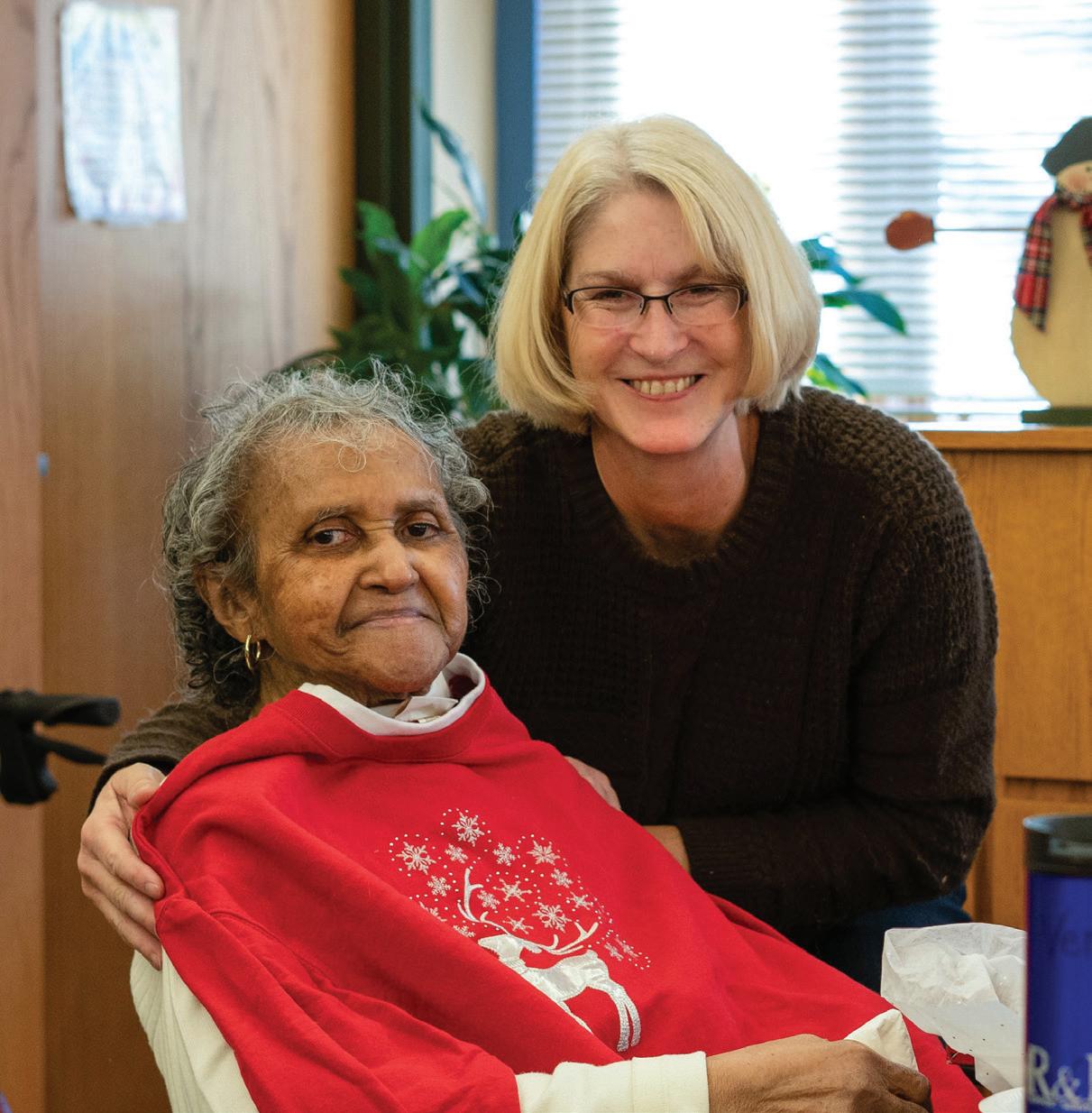
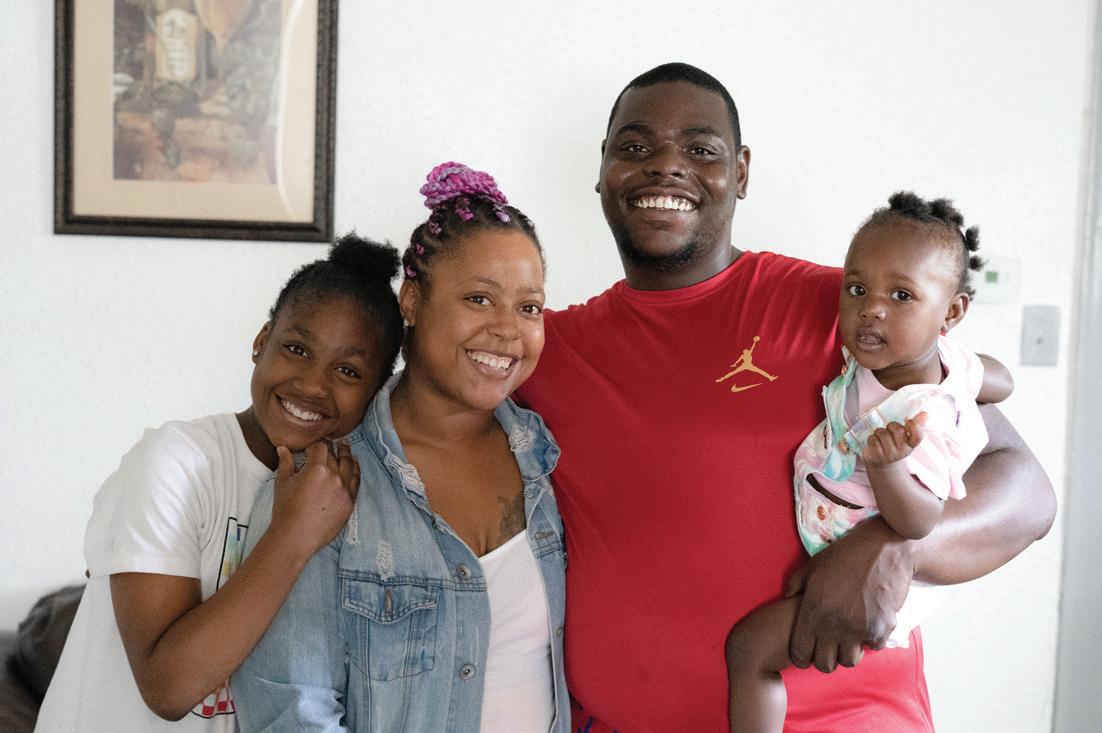
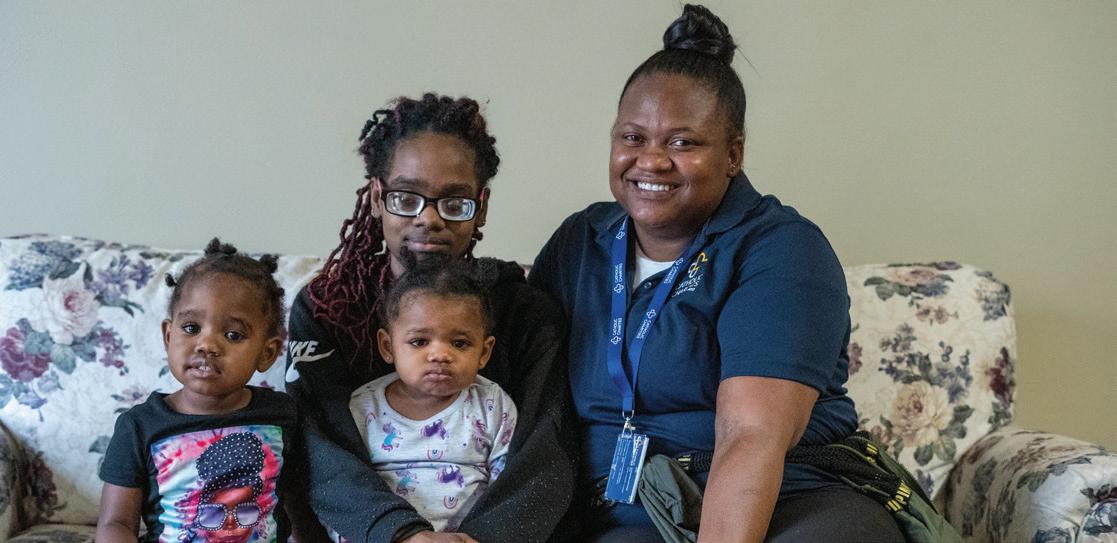
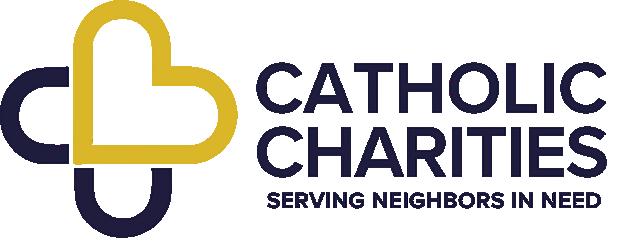
The organization provides services to help pregnant women, older adults, new mothers, people with intellectual disabilities, low- or no-income people, refugees and immigrants, and people experiencing emotional or financial crisis.
Where Your Money Goes:
Donations are used to fund Catholic Charities’ many programs. These include free counseling and case management services; free, quality legal services for refugees and immigrants; and assisting pregnant women and adults with disabilities.
P.O. Box 070912, Milwaukee 53207 414-769-3400 ccmke.org
72 milwaukeemag.com
Find out more on the MilMag Facebook video on Dec. 13 at noon.
SPONSORED CONTENT
MILWAUKEE RESCUE MISSION
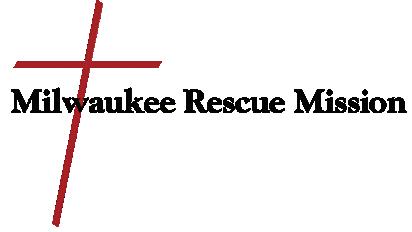
Recovery and Transformati
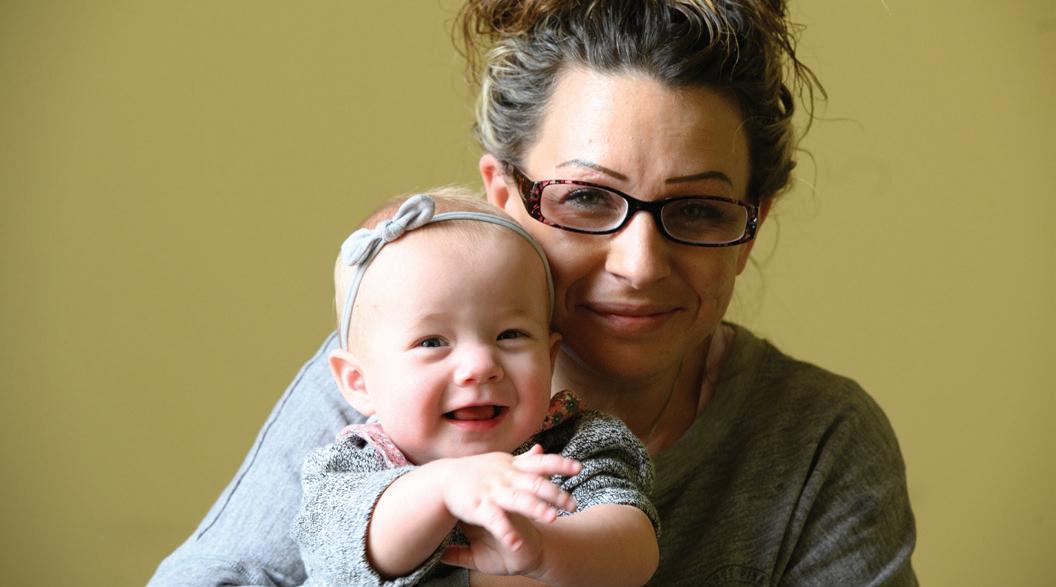
FIVE YEARS AGO, Tim Leusink overdosed on heroin three times over the course of about four months. “I figured I was running out of chances,” says Leusink, who had struggled with addiction for most of his life. Leusink’s mother told him about the Milwaukee Rescue Mission (MRM) and begged him to join its addiction recovery program. MRM is an emergency shelter that offers short-term stays for those who are homeless, as well as long-term residential programs. The New Journey program includes addiction recovery, among other resources. Leusink, realizing another overdose could be his last, enrolled. “I’ve done lots of different treatments in my life,” he says. “They were never long enough for me to create habits of success.”
New Journey lasts for a year. The goal of the first few months, according to Leusink, was just to start thinking clearly again. Each morning, the group met for classes, some of which were about addiction while others were about life skills. The rest of the day consisted of exercise, studying, helping to clean and more. MRM is a Christian organization, and the services provided are available to those of all faith backgrounds and walks of life. Leusink says that practicing his faith with other believers helped him overcome
the struggles of withdrawal. “We really believe there is a spiritual element to this,” says Patrick Vanderburgh, MRM’s president. “We believe God is transforming these individuals, and we’re just providing the place for that to occur.”
After a year, Leusink graduated and left MRM sober, and remains so to this day. He has since returned to MRM as an employee, supervising its donation distribution center. “All the staff here embraced me,” Leusink says. “God transformed my life in this place. It’s a positive place to be. It’s become a family to me.”
New Journey is one of several programs MRM offers – all of which are completely free of charge and funded by donations. MRM’s shelters for men, women and children currently house around 200 people every night and Cross Trainers Academy, its K-12th grade Christian school, serves 500 students from low-income families. Cross Trainers Academy is part of the Milwaukee Parental Choice Program. “If you’re concerned about the brokenness in society, the Milwaukee Rescue Mission is a place where you can invest,” Vanderburgh says. “We’re laboring to help men and women allow God to put that brokenness back together and leave our shelters with what they need to go forward.”
What We Do:
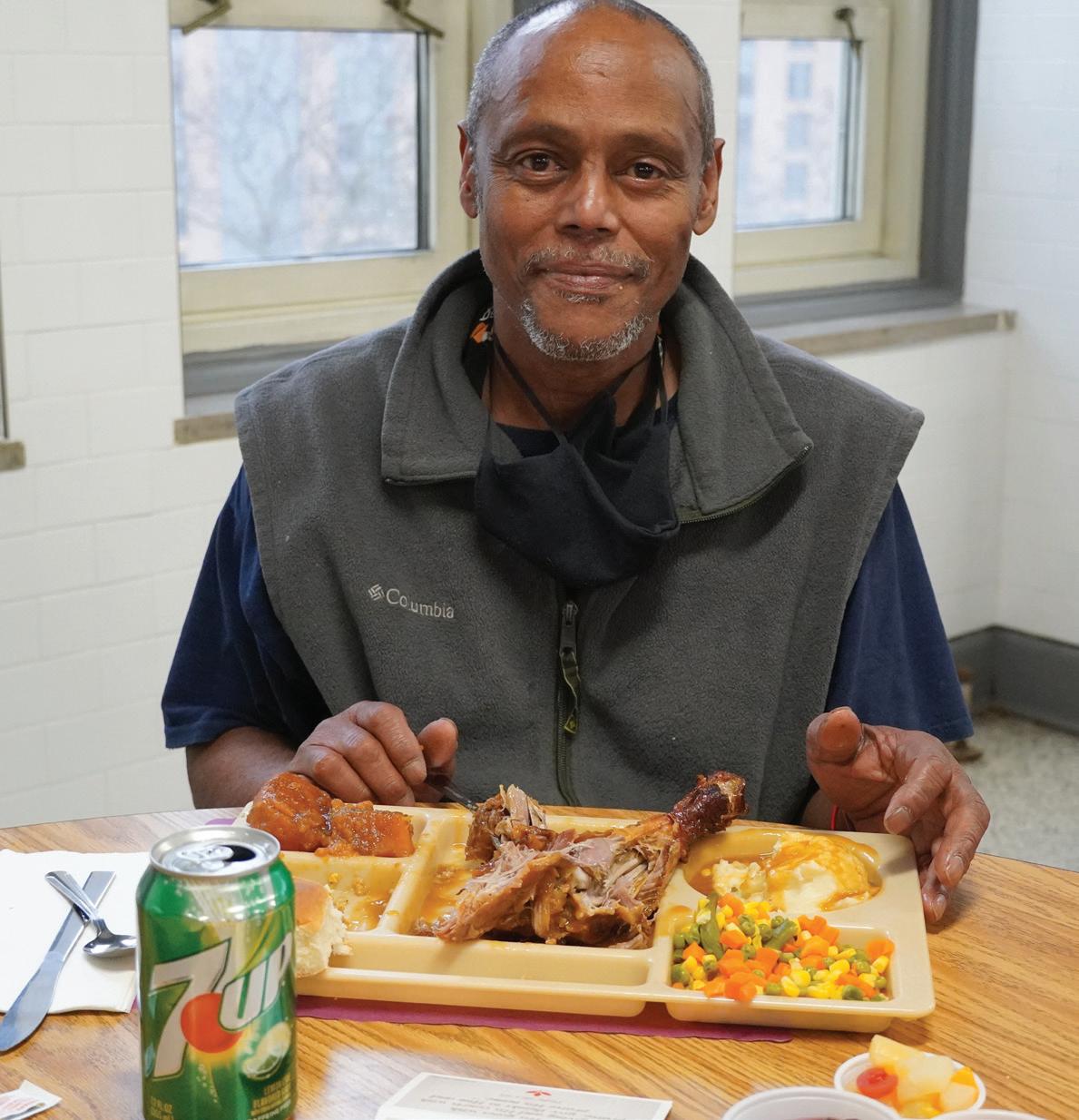
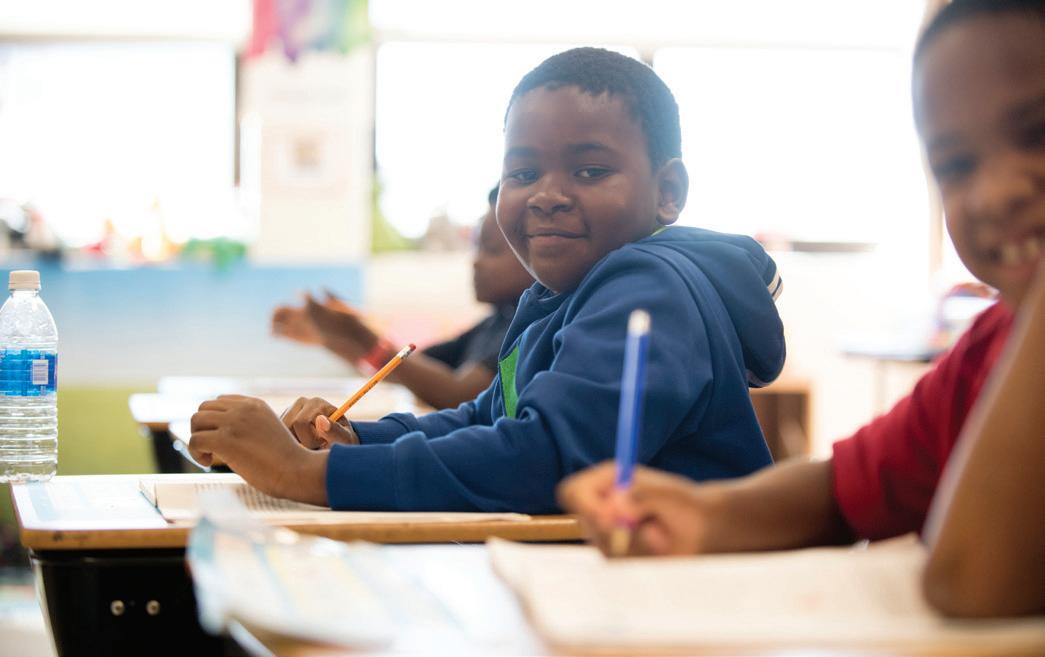
MRM provides emergency aid, such as food, shelter and clothing, as well as long-term rehabilitation programs to men, women and children who are struggling. MRM also addresses the root causes of poverty. MRM’s long-term programs include education, job training, counseling, addiction recovery, biblical instruction and life-skills classes.
MRM also runs a K-12 Christian school serving low-income families in Milwaukee.
Where Your Money Goes:
MRM receives no government funding for its shelter programs and depends on support from the community. Donations provide food, shelter and care to those in need. MRM accepts monetary or stock donations, items purchased through its gift catalog, sponsorships, matching gifts, and more.
Central Campus, 830 N. 19th St. North Campus, 1530 W. Center St. 414-344-2211 milmission.org
December 2022 73DONATE NOW! milwaukeemag.com/giveback
Find out more on the MilMag Facebook video on Dec. 13 at noon.
SPONSORED CONTENT
Find
Find out more on the MilMag Facebook video on Dec. 13 at noon.
CHOSEN
What We Do:
Chosen is a Christian nonprofit support ministry supporting adoptive and foster fam ilies. Chosen has given away more than 42,000 items to more than 500 families and organizations with over 1,100 children in care, including families with special-needs foster children. Chosen operates two “Family Closet” locations in metro Milwaukee, where foster families can shop, free of charge, for goods for children in their care. “Our focus is to help these families so they can care for the 7,000 kids in Wisconsin foster care,” says Karen Schlindwein, Chosen’s vice president of education and development. Chosen’s Open Hearts, Open Homes Gala celebrates the work of foster and adoptive families and raises awareness that more families are needed to care for vulnerable children in our community. Chosen’s next gala is on Feb. 25 from 5:30-10 p.m. at Davians (N56 W16300 Silver Spring Dr., Menomonee Falls). The silent and live auctions have a Roaring ’20s theme, with proceeds supporting Chosen. Tickets are available from Dec. 15-Feb. 8 at choseninlove.org/gala.
Where Your Money Goes:
Donations are used for Chosen’s Family Closet locations where foster/adoptive families shop free-of-charge for children’s items. As many families have special needs and/or multiple children in care, Chosen also purchases new equipment for them, which can be costly, such as car seats, highchairs and special-needs adaptive equipment.
If you can’t attend Chosen’s gala but still want to get involved, you can become a financial partner, sponsor or volunteer. Visit choseninlove.org/action to see what opportunities are available.

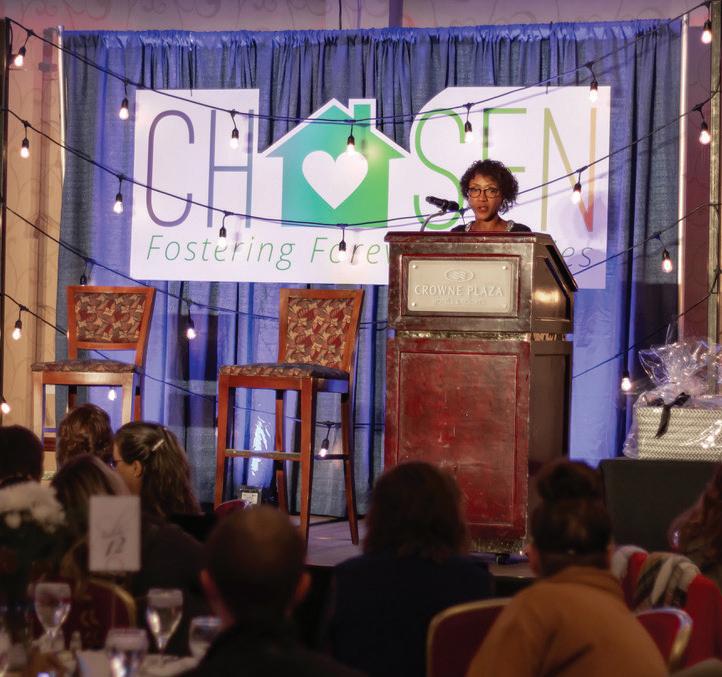
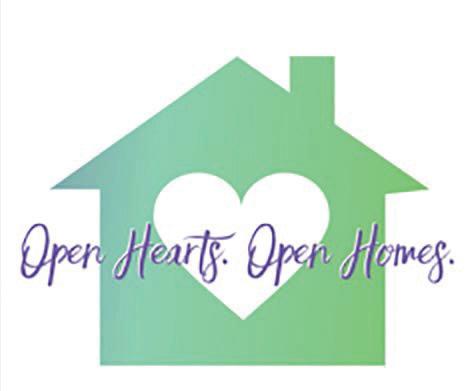
400 Travis Ln., Suite 30, Waukesha 262-724-6736 choseninlove.org
UNITED WAY OF GREATER MILWAUKEE & WAUKESHA COUNTY
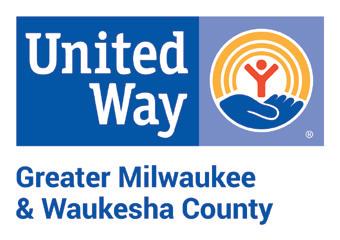

What We Do:
United Way of Greater Milwaukee & Waukesha County changes lives and improves the community by mobilizing people and resources to drive strategic impact in health, education and financial stability.
United Way brings people together. Donors, volunteers, government leaders, local nonprofits and leaders in education work together to solve some of the most pressing issues that people face every day.
United Way also focuses on big issues through their key initiatives. One of those initiatives is Safe & Stable Homes, with a goal to end family homelessness by 2023. Last year, more than 6,000 parents used Safe & Stable Homes programs to remain stably housed. This work has created systemic change in our courts, our classrooms and our shelters.
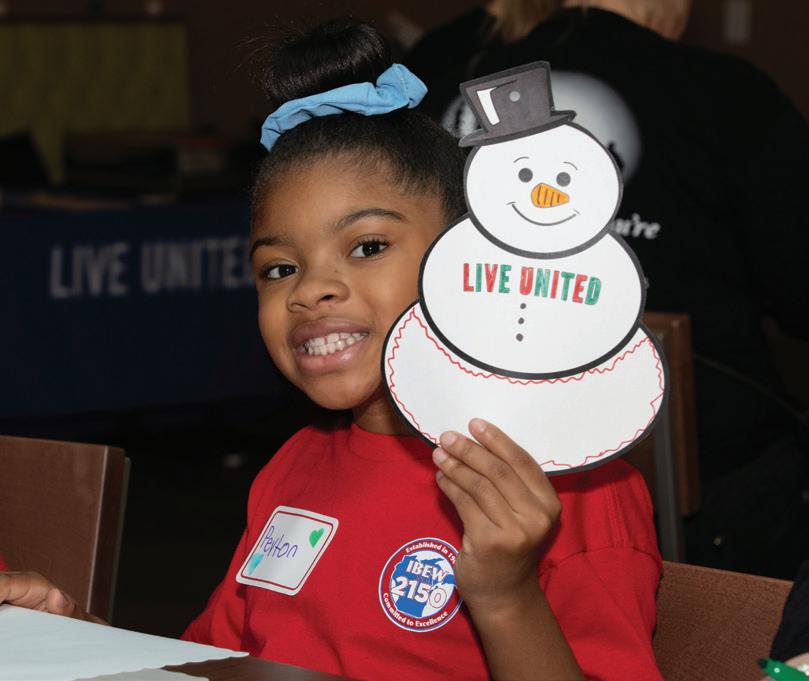
Where Your Money Goes:
Donations stay local, and support programs at local nonprofits.
At the heart of United Way is the Community Fund. When donors make a gift to this fund, their contribution is combined with thousands of other donors. These dollars are used to fund programs at nonprofits throughout the region. The Community Fund supports over 200 programs at over 100 nonprofits.
The goal of United Way is simple: help people live better lives. The 2022 United Way campaign in now underway with a goal to raise $57 million.
225 W. Vine St. 414-263-8100
UnitedWayGMWC.org
74 milwaukeemag.com SPONSORED CONTENT
out more on the MilMag Facebook video on Dec. 27 at noon.
YWCA SOUTHEAST WISCONSIN
Expanding the Missi
TRACY WILLIAMS is leading the YWCA South east Wisconsin into a new chapter. Since being named the organization’s president and CEO in January, Williams has spearheaded a reimagining of what the YWCA can do.
She is planning to launch a capital campaign in January to fund a major ren ovation of the YWCA’s 70,000-square-foot headquarters in Milwaukee’s Bronzeville Cultural and Entertainment District. While continuing the organization’s work providing employment services, personal finance management, education and more to women and families in southeastern Wisconsin, this renovation will allow the YWCA to offer intergenerational perform ing arts and athletics programming, as well.
“Everything we do is mission-focused,” Williams says. “Our mission is to eliminate racism, empower women, and promote peace, justice, freedom and dignity for all. We’re enhancing that mission and that vision, but we’re not changing it. We want to use the assets that we have to best help the people we serve.”
The YWCA will partner with dance, athletic and musical talent – including
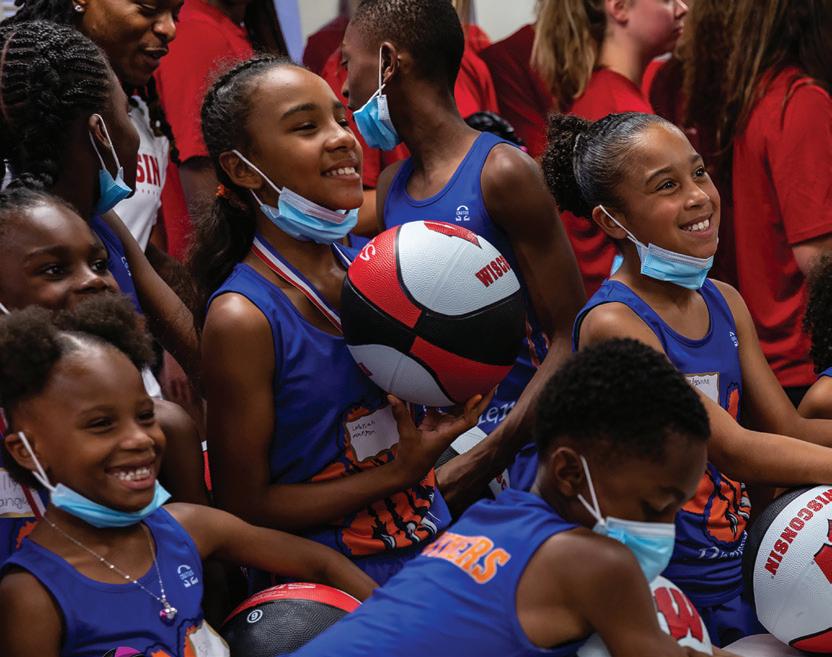
world-renowned choreographer Frank Gatson Jr. and track and field Olympian Carl Lewis – to provide services to southeastern Wisconsinites, including workshops and career expos in creative fields, along with performance opportunities at the head quarters’ new studio space.
“Our goal is not only to give our com munity something positive, but also to remove the barriers that create injustice,” Williams says. “I envision our youth and families finding opportunities here that they normally would not have because of the strong partnerships we’re building. Ultimately, this will help bring health and wellness to our community.”
Williams’ goal is to complete the renovation project by 2024. The YWCA currently serves about 10,000 people, and she anticipates that number will at least double after the renovation and programming expansion.
“The updated facility will be a women’s empowerment hub,” she says. “We’re reimagining the great work the YWCA can do and creating this new, dynamic space that will spark innovation, empower women and promote racial justice.”
What We Do:
YWCA Southeast Wisconsin serves individuals and families. Its mission is to eliminate racism, empower women and promote peace, justice, freedom and dignity for all.
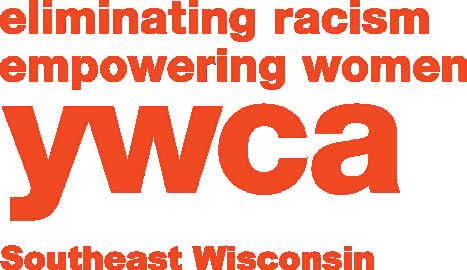
YWCA programs include personal financial management, adult education, women’s professional development and racial and gender equity programming.
The YWCA’s headquarters renovation will update its space to include a performing arts studio. YWCA will also introduce athletics opportuni ties and programs.
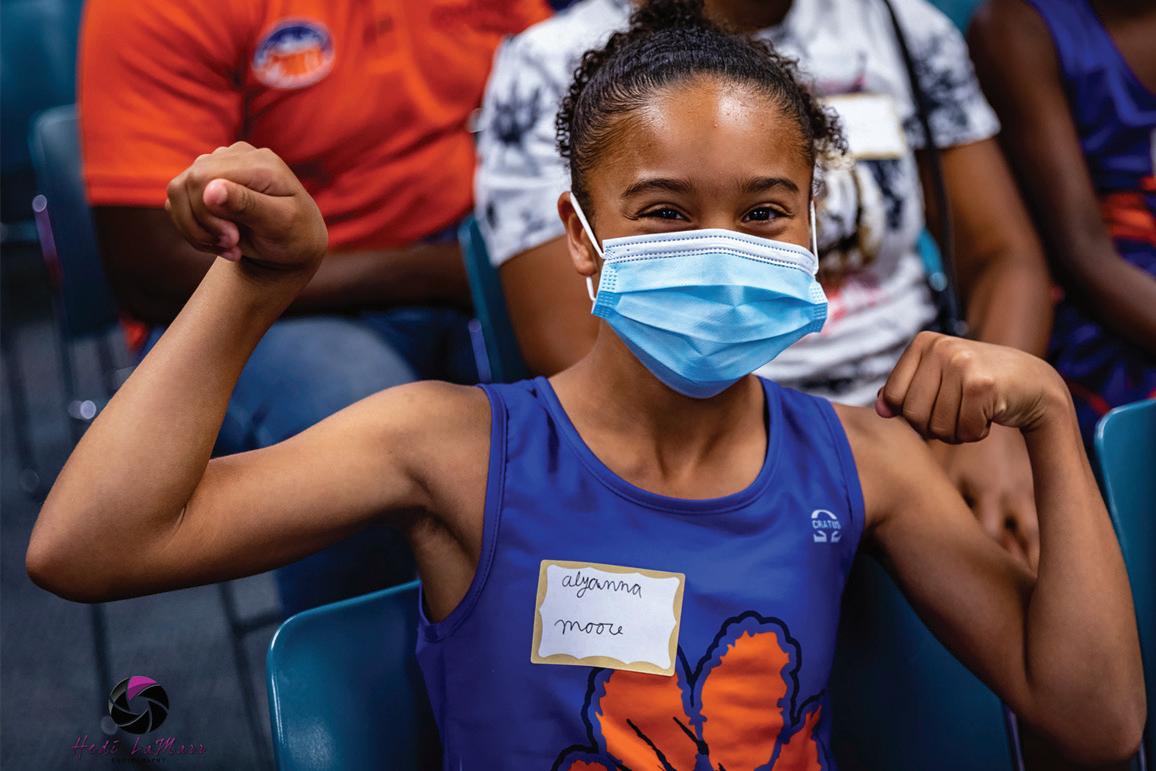
Where Your Money Goes:
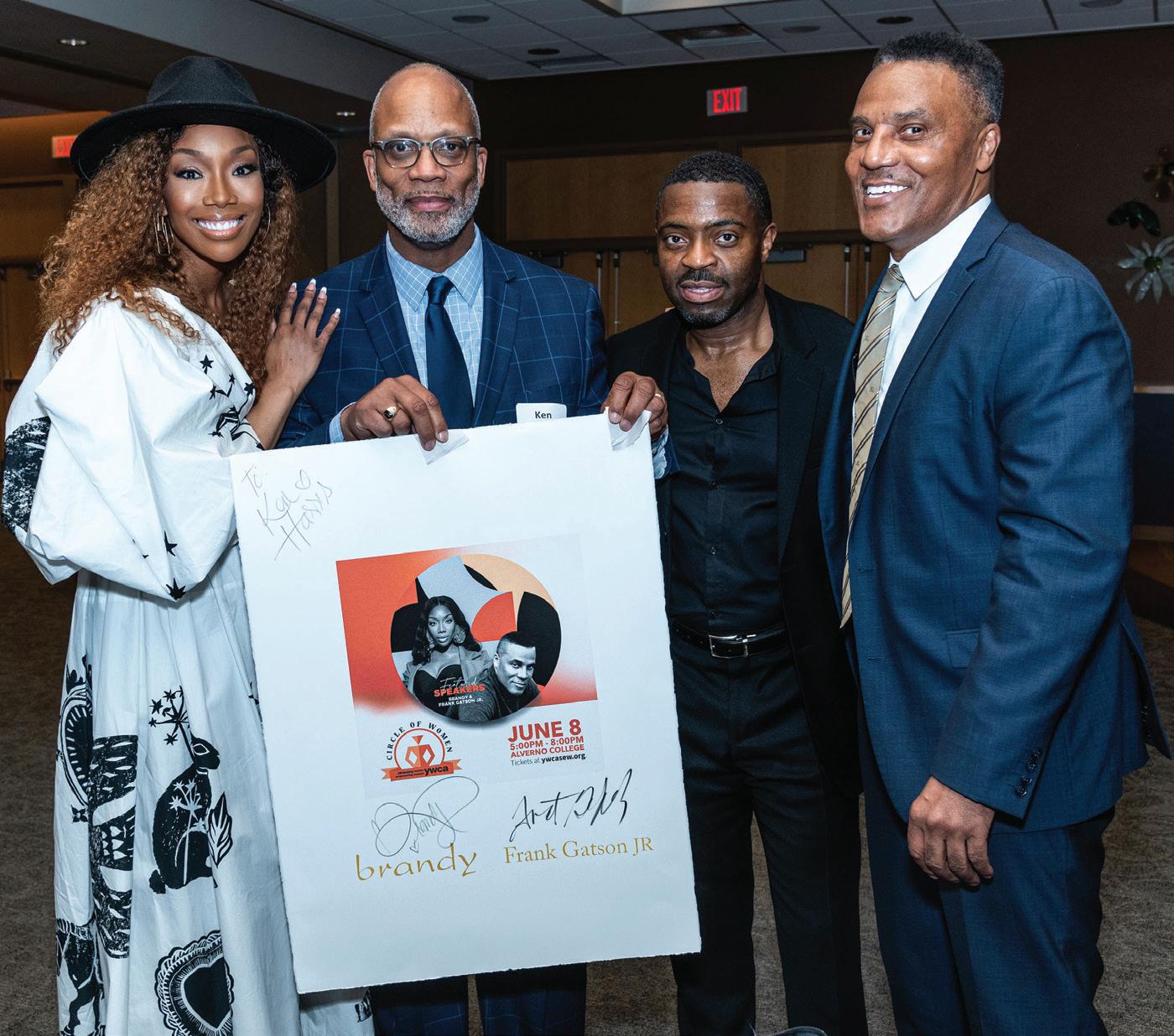
Donations to the YWCA’s new capital campaign will help fund the renovation of the organization’s Bronzeville headquarters, as well as established and new programs.
1915 N. Martin Luther King Dr. 414-374-1800 ywcasew.org
December 2022 75DONATE NOW! milwaukeemag.com/giveback SPONSORED CONTENT
Find out more on the MilMag Facebook video on Dec. 6 at noon.
Inclusion, Access and Empowerment
IN 2015, Bradley Grisham collapsed while walking across his living room. At only 44 years old, he’d had a massive stroke that nearly ended his life. He was left disabled, in need of a wheelchair and struggling with language. There was no way for him to continue his career as a welder. “It’s been a struggle,” Grisham says. “It takes a long time and a lot of hard work to recover.”
Grisham learned about Inde pendence First, a resource center in Milwaukee for people with dis abilities. It offers over 40 programs and workshops for people of all ages, including a computer skills workshop. He had never used a laptop before, but he knew that those skills would be useful for office jobs. “It was amazing,” he says. “I got extra help from the teachers when I needed it.”
After going through the classes, Grisham began applying for jobs. And when his power wheelchair broke down, the team at Indepen dence First surprised him with a brand new one. In July, he returned to Independence First as a
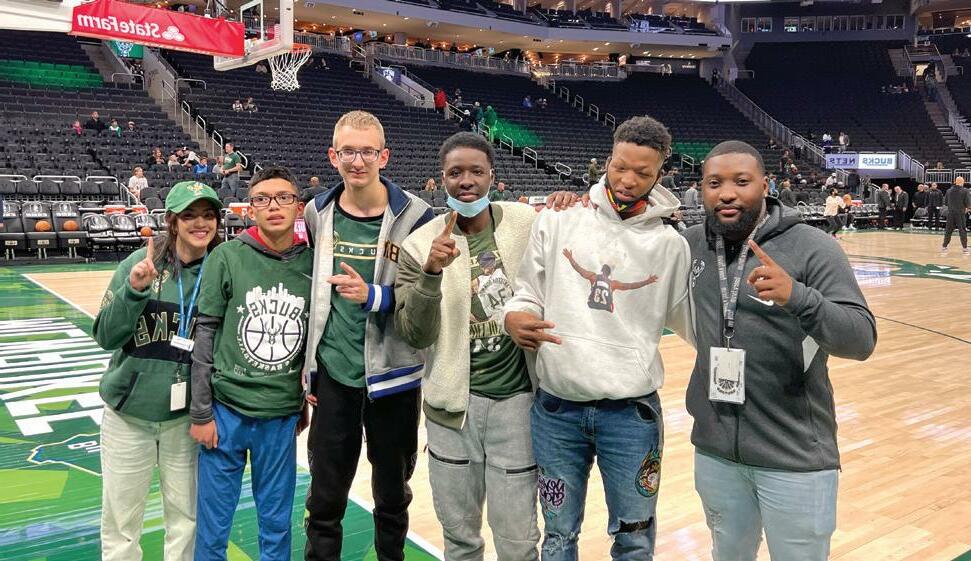
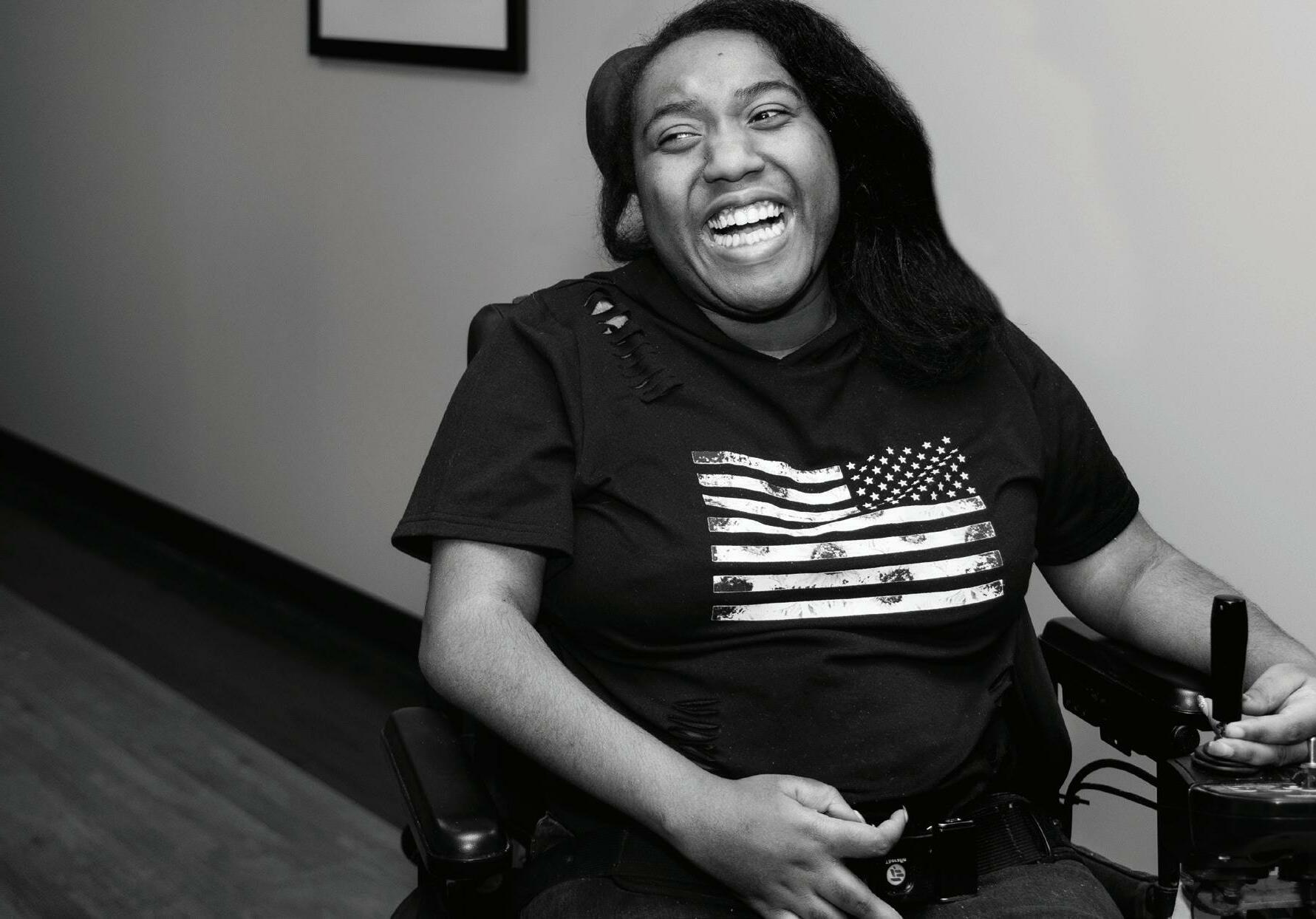
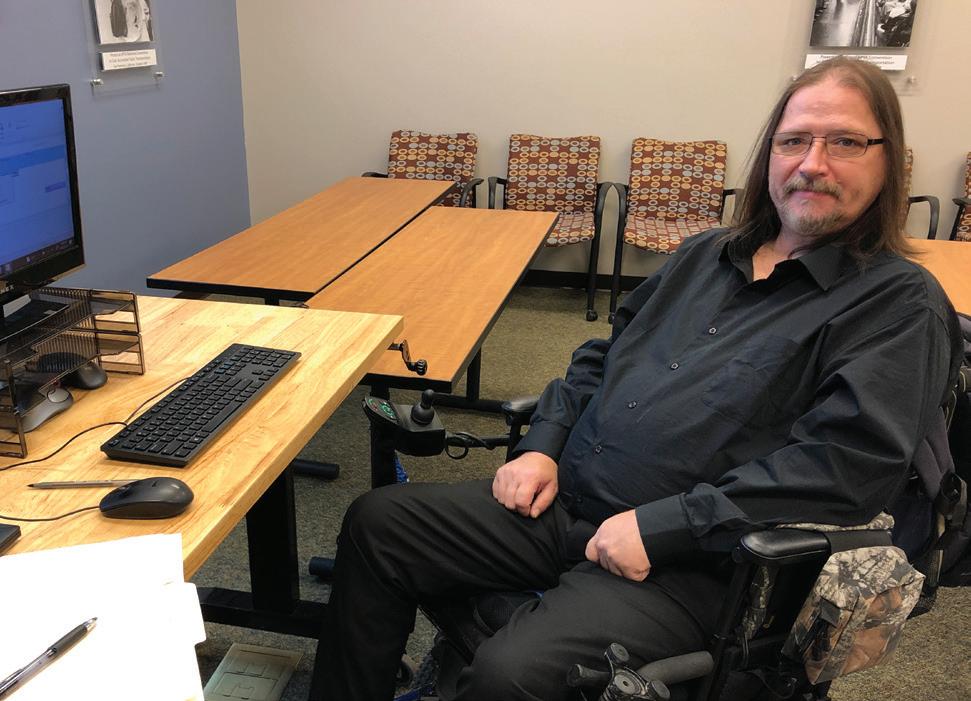
volunteer and became a certified peer counselor. “We believe that people with disabilities can live independently in the community with the right support,” says Marci Boucher, Independence First’s president and CEO. Independence First’s programming ranges well beyond the computer skills workshop Grisham took: There are recreation and social opportunities like group hikes, pro grams for paralyzed survivors of gunshots, peer support programs that provide people with disabilities with mentors, and an equipment exchange that provides tools like wheelchairs and walkers free of charge. Fifty percent of the staff and board of directors at Independence First are people with disabilities. “When you’re trained and educated by people who have the same disability as you, it’s going to make more of an impact,” says Boucher. “To see someone who has the same experience as you who is successfully living independently makes it easier for you to see how it’s possible.”
What We Do:
Independence First is a nonprofit that helps people with disabilities live independently in the community. Its efforts keep people in their homes living life the way they choose, instead of being put into nursing facilities.
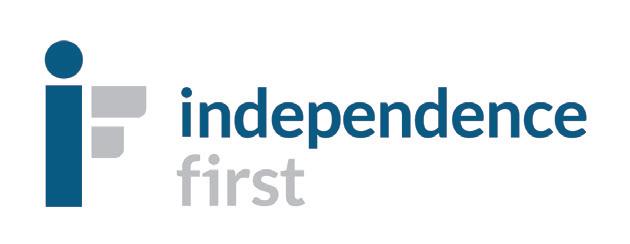
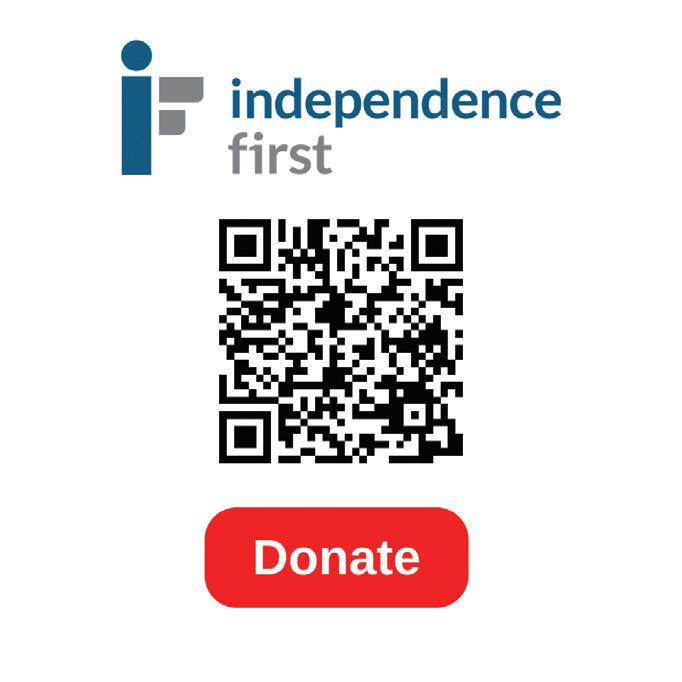
The organization helps people with disabilities of all ages and all disabilities and offers extensive programming. That ranges from a few hours of caregiving to assistive technology that helps people use a computer or drive a car.
Independence First provides advocacy for change to help people with disabilities and teaches people to advocate for themselves.
Where Your Money Goes:
Donations help people with disabilities learn, grow, thrive and be included in society. They also fund the 40-plus programs Independence First operates. Funds are used to teach youth with disabilities to be included in all aspects of society.
540 S. First St. 414-291-7520 independencefirst.org
SPONSORED CONTENT 76 milwaukeemag.com
Find out more on the MilMag Facebook video on Dec. 20 at noon.
SCAN TO DONATE NOW!
INDEPENDENCE FIRST
Food f the Hungry
LYN HILDENBRAND, executive director of The Gathering, remembers sitting down for a meal with one of the meal program’s guests. He told her how he used to have a good job and owned a home. But when he came down with a serious illness, he spent months in the hospital and racked up enormous bills. Shortly after his stay, he lost his job. Unable to pay his bills, the man lost his house. He ended up on the streets, where he came to one of The Gathering’s four Milwaukee-area locations for a free meal.
“He never thought this could happen to him,” Hildenbrand says. “This could be happening to your next-door neigh bor right now, and you don’t even know it. When you see people on the streets, who are without, treat them with dignity and respect – that’s what it’s all about.”
The Gathering has been operating in Milwaukee for 40 years. It provides 10 to 11 free meals a week for the hungry or homeless individuals, prepared at four distribution sites. It also provides meals to the Cathedral Center homeless
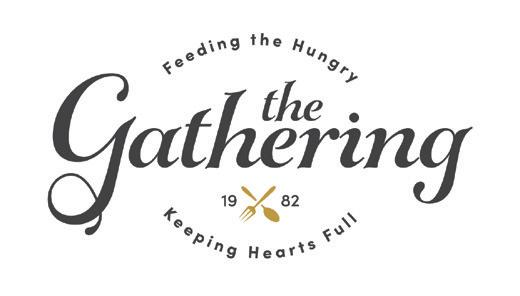
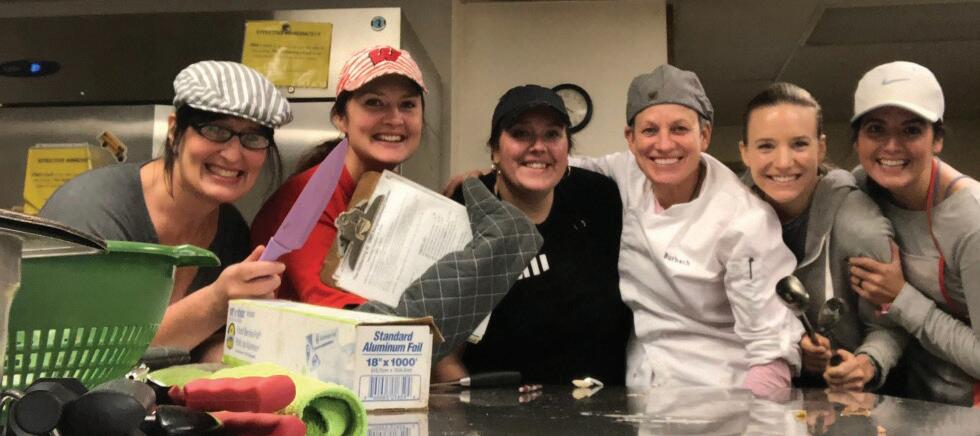
shelter and Benedict Center supporting women affected by the criminal justice system. The Gathering serves 60,000 meals every year, with the help of over 1,500 volunteers.
“We’re providing meals, but we also want to make sure everyone feels welcome and engaged,” Hildenbrand says. “We treat everyone like they’re coming to our home to eat.”
Besides operating their locations and serving meals, The Gathering also partners with the city of Milwaukee Health Department, Housing Authority and Hunger Task Force to help with mental health, housing issues and even vaccinations. Next year, Hildebrand plans to implement a new program to provide after-school dinners for Mil waukee children at Our Next Generation neighborhood center.
“We turn nobody away, and we ask no questions,” she says. “We don’t make you do paperwork; we don’t make you show us an ID; we don’t make you tell us your income level. You come to eat, you sit down and enjoy.”
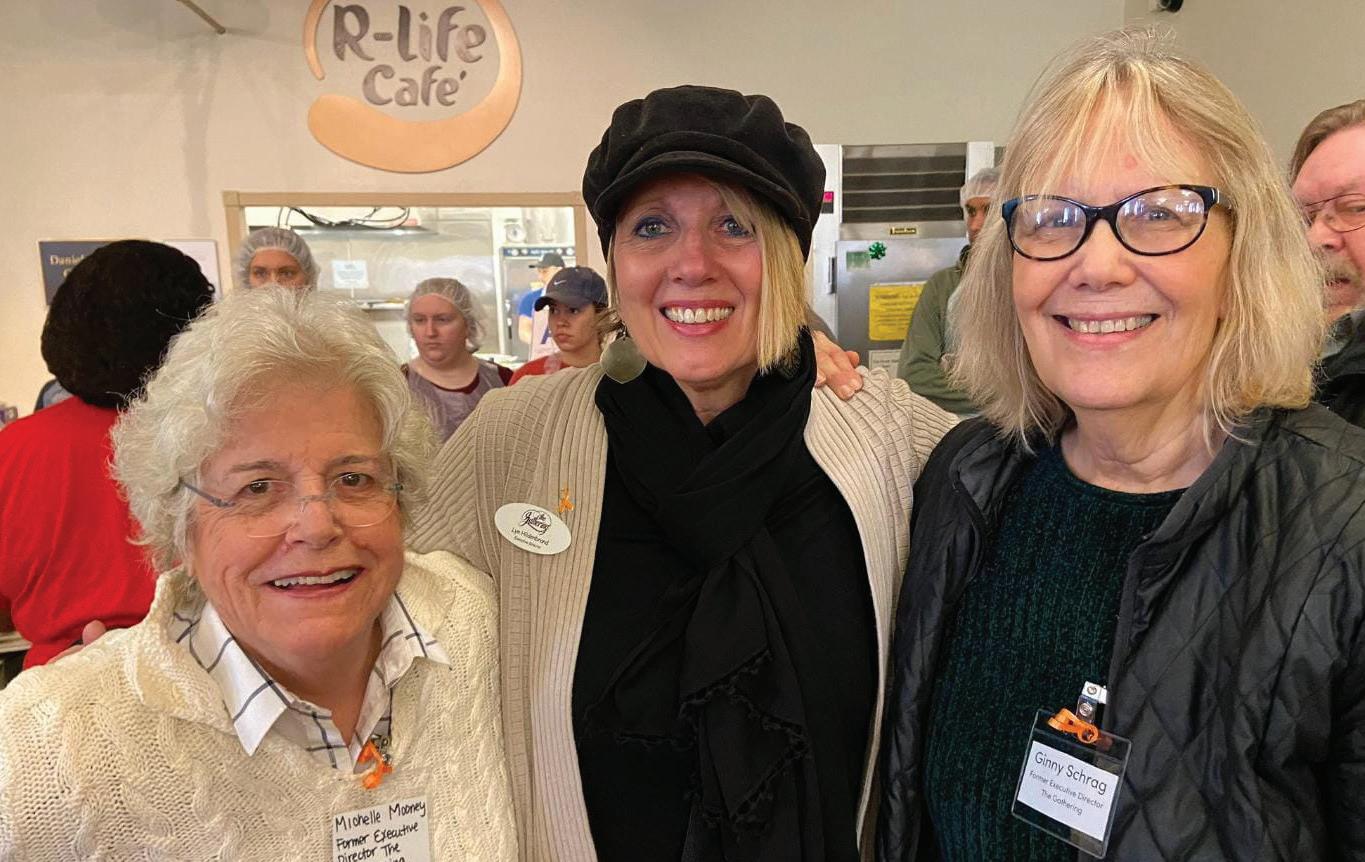
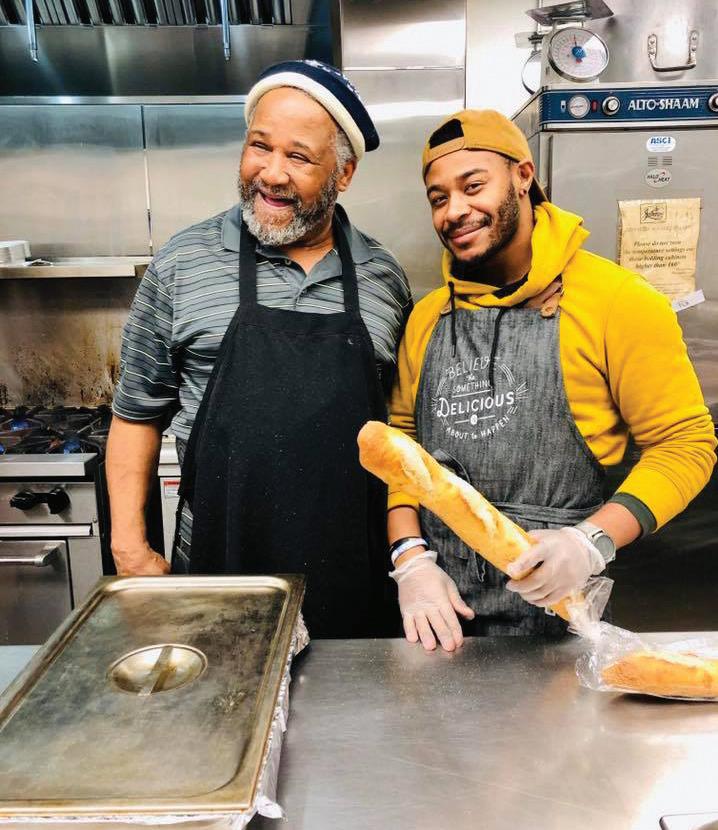
What We Do:
For 40 years, The Gathering has been preparing an average of 60,000 fresh, nutritious meals annually for Milwaukee’s hungry and homeless at four meal distribution sites. It serves breakfast and dinner on weekdays, and lunch and dinner-to-go bags on Saturdays.
The Gathering partners with other meal programs and social services organizations to alleviate hunger and address root causes and problems associated with hunger and poverty.
The organization also distributes supplies to those in need, including toiletries, socks, outerwear, bottled water, blankets and more.
Where Your Money Goes:
Financial support helps The Gathering provide meals to those who would otherwise go without. It pays for food and supplies, as well as facility upkeep.
With a staff of nine, The Gathering relies heavily on volunteers. You can sign up to help on its website. 804 E. Juneau Ave. 414-272-4122 thegatheringwis.org
December 2022 77DONATE NOW! milwaukeemag.com/giveback
Find out more on the MilMag Facebook video on Nov. 29 at noon.
SPONSORED CONTENT
THE GATHERING














































































